College Essay: My Parents’ Sacrifice Makes Me Strong

After living in Texas briefly, my mom moved in with my aunt in Minnesota, where she helped raise my cousins while my aunt and uncle worked. My mom still glances to the building where she first lived. I think it’s amazing how she first moved here, she lived in a small apartment and now owns a house.
My dad’s family was poor. He dropped out of elementary school to work. My dad was the only son my grandpa had. My dad thought he was responsible to help his family out, so he decided to leave for Minnesota because of many work opportunities .
My parents met working in cleaning at the IDS C enter during night shifts. I am their only child, and their main priority was not leaving me alone while they worked. My mom left her cleaning job to work mornings at a warehouse. My dad continued his job in cleaning at night.
My dad would get me ready for school and walked me to the bus stop while waiting in the cold. When I arrived home from school, my dad had dinner prepared and the house cleaned. I would eat with him at the table while watching TV, but he left after to pick up my mom from work.
My mom would get home in the afternoon. Most memories of my mom are watching her lying down on the couch watching her n ovelas – S panish soap operas – a nd falling asleep in the living room. I knew her job was physically tiring, so I didn’t bother her.
Seeing my parents work hard and challenge Mexican customs influence my values today as a person. As a child, my dad cooked and cleaned, to help out my mom, which is rare in Mexican culture. Conservative Mexicans believe men are superior to women; women are seen as housewives who cook, clean and obey their husbands. My parents constantly tell me I should get an education to never depend on a man. My family challenged machismo , Mexican sexism, by creating their own values and future.
My parents encouraged me to, “ ponte las pilas ” in school, which translates to “put on your batteries” in English. It means that I should put in effort and work into achieving my goal. I was taught that school is the key object in life. I stay up late to complete all my homework assignments, because of this I miss a good amount of sleep, but I’m willing to put in effort to have good grades that will benefit me. I have softball practice right after school, so I try to do nearly all of my homework ahead of time, so I won’t end up behind.
My parents taught me to set high standards for myself. My school operates on a 4.0-scale. During lunch, my friends talked joyfully about earning a 3.25 on a test. When I earn less than a 4.25, I feel disappointed. My friends reacted with, “You should be happy. You’re extra . ” Hearing that phrase flashbacks to my parents seeing my grades. My mom would pressure me to do better when I don’t earn all 4.0s
Every once in awhile , I struggled with following their value of education. It can be difficult to balance school, sports and life. My parents think I’m too young to complain about life. They don’t think I’m tired, because I don’t physically work, but don’t understand that I’m mentally tired and stressed out. It’s hard for them to understand this because they didn’t have the experience of going to school.
The way I could thank my parents for their sacrifice is accomplishing their American dream by going to college and graduating to have a professional career. I visualize the day I graduate college with my degree, so my family celebrates by having a carne asada (BBQ) in the yard. All my friends, relatives, and family friends would be there to congratulate me on my accomplishments.
As teenagers, my parents worked hard manual labor jobs to be able to provide for themselves and their family. Both of them woke up early in the morning to head to work. Staying up late to earn extra cash. As teenagers, my parents tried going to school here in the U.S . but weren’t able to, so they continued to work. Early in the morning now, my dad arrives home from work at 2:30 a.m ., wakes up to drop me off at school around 7:30 a.m . , so I can focus on studying hard to earn good grades. My parents want me to stay in school and not prefer work to head on their same path as them. Their struggle influences me to have a good work ethic in school and go against the odds.

© 2024 ThreeSixty Journalism • Login

ThreeSixty Journalism,
a nonprofit program of the College of Arts and Sciences at the University of St. Thomas, uses the principles of strong writing and reporting to help diverse Minnesota youth tell the stories of their lives and communities.
Home — Application Essay — National Universities — How Having Immigrant Parents Changed Me: Personal Experience
How Having Immigrant Parents Changed Me: Personal Experience
- University: Texas A&M University
About this sample

Words: 869 |
Published: Jul 18, 2018
Words: 869 | Pages: 2 | 5 min read
In this essay, I will explore the profound impact of having immigrant parents on my upbringing and perspective. Growing up, I had the unique opportunity to bridge the gap between my life in the United States and the experiences of my parents in Belarus, a country with its own set of challenges and hardships. These contrasting worlds have shaped my values, work ethic, and resilience, ultimately influencing the person I have become today.
Say no to plagiarism.
Get a tailor-made essay on
'Why Violent Video Games Shouldn't Be Banned'?
6:00 AM, small industrial town of Zhodino, Belarus. Summer 2008. I reluctantly boarded the bus, immediately noticing that it was absolutely packed. The bus, of course, was to my grandmother’s dacha, a cottage where she grew and tended to what I have always considered to be an absurd amount of crops, all by herself. After standing cramped like sardines for an hour, and then walking along a muddy path for twenty minutes, we finally arrived at my grandparents’ dacha. I was absolutely exhausted, but we were just getting started. At any given moment in the next seven hours I was being forced to dig or pick some sort of crop out of the ground.
Through all of my tantrums and complaining that day, my grandmother continued working and just kept telling me to do the same. When 2 PM finally rolled around, I was so happy to be going back to her apartment that I found the energy to run through most of the muddy path. Once we got to the bus stop, however, I was devastated to learn that we were not going home, but to the local farmer’s market. My grandmother spent the next 2 hours selling the crops she had unearthed that day, while I was passed out with my face on the raggedy old tablecloth she used.
For my parents, that full day of manual labor was a very common way to spend their summer days growing up. Before they immigrated to the United States in 1998, they had grown up in Belarus, which was a part of Soviet Union at the time. Even as a self-reliant nation today, the country continues to struggle under a dictatorship; a relic of the totalitarian Past. Not quite North Korea, but with certain similarities. And while I was raised in a much more financially stable household in Texas, my parents helped me to understand how fortunate I was by bringing me back to their home country with them most summers growing up.
I have seen what it is like to stay in a country in crisis, and after every summer I have returned home to Texas with a more positive outlook on life. I’ve been able to encourage myself through even the most stressful points in my life by simply thinking about how much more serious my problems may be if my parents hadn’t worked as hard as they did to make it out of Belarus. If I hadn’t returned to Belarus every summer and seen how food prices were always rising and how my grandmother’s pension was always dropping, it is unlikely that I would be able to understand other people’s misfortunes and suffering as well as I am now. Because of these humbling experiences, I’ve spent a plentiful amount of time volunteering for CCA Food Pantry, the Texas Ramp Project, and the North Texas Food Bank.
Since my parents have always had a serious understanding of what can happen without self-sufficiency and hard work, I was raised somewhat differently than most of the kids around me were. While my some of my friends’ parents would essentially nanny them through many of their problems, I was taught from a very young age that I would have to take care of certain things on my own. When I was eight years old and told my dad I was interested in woodworking, he gave me a hammer, nails, and some wood and said “Build a table then.” When I told my mom I wanted to join my first basketball league when I was seven, she told me “That’s great, but you’ll have to sign up yourself, I’m very busy at work right now.”
Keep in mind: This is only a sample.
Get a custom paper now from our expert writers.
Events like these were clearly nowhere near traumatic, and my parents have always given me everything I’ve ever needed. However, they did help me to learn self-sufficiency and perseverance, because while I had never built anything in my life or used a computer for anything other than gaming, I had to figure these problems out on my own. Because of the way I was raised, I realized from a young age that complaining wouldn’t get me anywhere. Resiliency, however, would. I eventually built that table and figured out how to sign up for that league, and while the table only had one leg and I accidentally sent my registration to the YMCA in Arkansas, I learned through episodes like these that if I was dedicated enough, I could achieve my goals. Being raised by two immigrant parents has been very influential in my maturation. The values they have instilled in me, along with the perspective I’ve gained by visiting their old homes in Belarus, have made me a more determined and unselfish person. I would not be where I am today if it wasn’t for my unorthodox upbringing.
Cite this Essay
Let us write you an essay from scratch
- 450+ experts on 30 subjects ready to help
- Custom essay delivered in as few as 3 hours
Get high-quality help

Verified writer
- Expert in: National Universities

+ 128 experts online
By clicking “Check Writers’ Offers”, you agree to our terms of service and privacy policy . We’ll occasionally send you promo and account related email
No need to pay just yet!
Remember! This is just a sample.
You can get your custom paper by one of our expert writers.
121 writers online

Are you interested in getting a customized paper?
Still can’t find what you need?
Browse our vast selection of original essay samples, each expertly formatted and styled
Related Essays on National Universities
At 8:35 AM, on a Tuesday during the school year, November 29, 2011 to be exact, I not-so-vividly recall shuffling around under the covers as a young teenager often does after waking up in the morning and looking over at the [...]
There was one playground not too far from my grandparents' apartment in Cairo (the summer home of my childhood) where I wasn't treated like the quirky, abnormal kid that I was used to being. It wasn't your ideal picture of [...]
Florida State University offers an excellent program in statistics that has caught my attention. The reason why I am drawn to this program is that I have always been interested in the field of mathematics and how it applies to [...]
For more than three generations, my family has answered the call of elected public office. My father served in the State Legislature, my Grandfather and Great Grandfather as locally elected officials. Most teenagers my age have [...]
During a trip to the US, my father brought back a boxed set of The West Wing DVDs. While I planned to watch them during my school holiday as amusement, the show instead became an obsession and an education in itself. My [...]
They call it free falling for a reason. There’s something liberating that comes with taking the plunge, but that sense of freedom didn’t come easily for me. My sophomore year of high school, I joined the Durango High School’s [...]
Related Topics
By clicking “Send”, you agree to our Terms of service and Privacy statement . We will occasionally send you account related emails.
Where do you want us to send this sample?
By clicking “Continue”, you agree to our terms of service and privacy policy.
Be careful. This essay is not unique
This essay was donated by a student and is likely to have been used and submitted before
Download this Sample
Free samples may contain mistakes and not unique parts
Sorry, we could not paraphrase this essay. Our professional writers can rewrite it and get you a unique paper.
Please check your inbox.
We can write you a custom essay that will follow your exact instructions and meet the deadlines. Let's fix your grades together!
We use cookies to personalyze your web-site experience. By continuing we’ll assume you board with our cookie policy .
- Instructions Followed To The Letter
- Deadlines Met At Every Stage
- Unique And Plagiarism Free

Personal Narrative: My Immigrant Parents
There were three lessons that my immigrant parents ingrained in their first-generation children: Work hard, never give up, and most importantly, give back. Among other life lessons they taught us, these three were the basis for everything. It would be the basis that would and will define me as a person. My mother was a widow by the time she was in her mid-thirties with four children under the age of 16. It would have been easy to accept handouts and pity, but I witnessed her rise from tragedy, more determined than ever to provide every necessity that her children needed and wanted. As appreciative as I was when I was younger, I look back in total awe of her. Even though she worked 60-plus hours a week to make ends meet, she still told us that …show more content…
It wasn’t until our family moved into our own home that was my mother was diagnosed with Hepatitis C. My world came tumbling down and I vowed secretly that I would do everything I could to prolong my mother’s life. I poured myself into work, working 40-plus hours a week, looked for any doctor that would be willing to help her, researched insurance plans that wouldn’t cost a fortune for a pre-existing condition while still going to school. Needless to say, my grades suffered as I struggled to find the balance between aiding my mother and her condition, going to school full time, and working overtime. I came to a breaking point and I withdrew hours at school, choosing to work. Looking back, I would have done things differently, but I accomplished what I sought out to do: I was able to find insurance, put my mother on a drug regimen that suppresses the virus in her, and pay off our house in less than fifteen years. It is one of my greatest …show more content…
I started my path on becoming a teacher, but was turned to occupational therapy by an OT who saw potential in me; potential I didn’t know I possessed. I was apprehensive at first only because, like most people, I didn’t know what OT was. I was first exposed to it through my autistic cousin, sitting in on his therapy sessions. I was amazed at how the therapist was able to guide my cousin, teaching him skills and movements through simple puzzles and games I took for granted every day. I began doing more research and my fascination soon became my passion. I fully dedicated myself to school, cutting back on hours at work. My failure to commit myself early in my education is my biggest obstacle to date, but my C-average soon became a strong B in a few short semesters. Soon after, I found myself on the University of Houston – Downtown’s Dean’s List in the Spring of 2013 and graduated Fall 2013, majoring in Interdisciplinary Studies and a minor in English, something I thought would never
Personal Narrative: Coming From A Mexican Immigrant Family
Coming from a Mexican immigrant family I have learned to recognize since a very young age that because of the status that my parents are placed in they cannot pursue a better future like the one I want. I have been given the opportunity to challenge myself with obtaining a higher education than just high school itself. My parents have demonstrated to me through their hard work that I have to value this opportunity unless I want to end up with low paying job. My life long dedication comes from seeing my parents make sacrifices in order for my education to continue.
Personal Narrative : My Immigrant Story
Welcome. A single word on the carpet by the door greets me whenever I come home. There had been times where that one word made my heart beat and cry with joy. But not now, for many things changed through the years. Now when I look at this carpet, I instead question back: ‘Do you really mean that?’
Personal Narrative: Being A Daughter Of Immigrant Parents
Being a daughter of immigrant parents has never been easy here in America. Both my parents worked excessively hard to be financially stable. Unfortunately at the age of ten my life changed. I learned that my parents no longer loved each other. The arguing and fighting my parents had, only damaged me emotionally. I was too young to grasp the idea that my parents were separating which become one of the hardest times for my mom to maintain my siblings and I. Shortly after, I began attending church and fell in love with the idea of getting closer to God. Luckily, my life took an enormous turn the moment I gave my life to Christ. God has opened numerous opportunities for my education. I am proud of all the accomplishments I have achieved in high
Personal Narrative: My First Generation Immigrant
It is not uncommon to hear one recount their latest family reunion or trip with their cousins, but being a first generation immigrant, I sacrificed the luxury of taking my relatives for granted for the security of building a life in America. My parents, my brother, and I are the only ones in my family who live in the United States, thus a trip to India to visit my extended family after 4 years was an exciting yet overwhelming experience. Throughout the trip, I felt like a stranger in the country where I was born as so many things were unfamiliar, but there were a few places that reminded me of my childhood.
Personal Narrative: Growing Up With Two Immigrants
Growing up with two immigrant parents, me and my siblings were and still are their go to source when needing help translating something or talking to someone in the store or on the phone. Like the author Amy Tan, when my mother has a question about why her phone bill was higher than usual or needing help with a product at a store, we are her go to source. Although my parents spoke english fluently, their thick accents made it hard for people to understand them. They would not be taken as seriously when speaking with others as if their accents made them sound as if they were less educated not knowing they spoke over three languages.
Personal Narrative: My First Immigrant
With the settlement of first immagrants to America, this has been the phrase in which they preach. I seemed to those from an outside perspective of America, that this was the place to be. This was no exception for my grandfather. His valuable lessons of dedication, persistence and passion have shaped me into the person that I have become.
Personal Narrative: My Immigrant Perspective
I chose my immigrant participant from a personal perspective, yet not knowing much about him. Last year, my first year teaching, I had a little boy in my class that was Latino, very shy and quite. He struggled in reading and writing and after meeting with his parents and ESOL teacher several times, the decision was made to retain him in first grade. His parents, especially dad was hesitant about the decision, and began to tell small glimpses of how his son was very much like him, shy, and scared to reach out because of the language barrier. There was never much elaborated on, but I could tell that dad had possibly been in a similar situation before. This year, I was lucky enough to have this same child in my first grade class again. After receiving
Personal Narrative: Growing Up In The United States As An Immigrant
Growing up in the US as an immigrant, my childhood was a little different from most people’s. I faced many struggles due to the differences in cultures, social, and economics. However, I was able to overcome all those challenges and become a more humble, responsible, and determined individual because of my ability to adapt quickly, be compassionate, and stay goals-oriented.
Personal Narrative: My Life As An Immigrant
One person can have the power to change a community’s perspective or sharpen it. As a Latina and an immigrant, my family’s experience has taught me about the process of entering the United States and the complications that follow. Still, my comprehension of social issues developed further the day I met my brother’s friend and classmate, who followed my brother home, unannounced, on the bus. I will call him Eric, my brother’s friend and his family are Salvadorian undocumented immigrants who seek political asylum. Eric’s family consists of a younger and an older sibling, and his mother. The only source of income is what his mother, who does not speak English very well, makes. Lately, this is what keeps me up at night. Thoughts of this child and his family consume my mind while I brainstorm ways of helping. At a young age when their biggest concerns
Personal Narrative: Becoming An Immigrant
My father left my mother as a young immigrant, he left me at a young age, I only had my mother and my little sister. I couldn’t imagine the world without them, so when I discovered I could potentially lose my mother, I almost fell apart.
As I walked into the house, my parents were waiting for me in the living room. I did not know what was happening, but from the look in their eyes, I knew that was something wrong. My mother sat me down to tell me that my father had lost his business. The situation seemed so hectic; yet, the conversation felt like it lasted a lifetime. Finding out this news was detrimental to my family because my father had worked hard in America to build this business. I learned that my father had to give up his business and, as result my family had to start over, and find a new way to make a living.
Personal Narrative: I Am An Immigrant
I am an immigrant, originating from Ukraine. I moved here three years ago to take advantage of the “land of the free”. I had heard of the conscription under Russian imperial dictators, such as Tzar Nicolas, and Soviet despots, like Stalin. Fourcing an individual to perform a service, regardless of the cause, seems to be slavery to me. When I found that men in America must register for the draft, in my eyes, “the land of the free” became slightly less free. It is abhorrent that men may be required to enlist in the military, and equally so for women and therefore should not be tied to feredal grants.
Personal Narrative: My Immigrant
Looking back to the past, before I was born, I never really knew where my ancestors came from or why they even came here in the first place. It was never made a big deal in my family to talk about our history and the reasons why they came to American. So, I decided to do a little research and find out a little bit about myself, my culture, and my communication styles. I asked for a little bit of help from my grandmothers from each side of my family. I got an abundance of information that opened my eyes to a new past that I didn’t even know about.
Personal Narrative: My Life As A Mexican Immigrant
My parent’s struggles taught me to never accept defeat because there are endless possibilities for those who don’t give up. Their perseverance for a better life sparked a sense of determination in me that ignited a fuel for prosperity, and an optimism for bigger and better opportunities not only for me, but for my
Personal Narrative: My Parents In The United States
I have not seen my parents in three years. I came to the United States when I was eighteen to become an American chemical engineer. I have met new people in the new land and made friends with a few of them. The longer I am away from my parents and the more I interact with people, the more I realize my parents have a significant influence to shape who I am today. Looking back the time I was with my parents, I have found several odd things in my house that I did not notice when I was a kid. To many people, they probably think my parents are strange. However, when I have grown up and traveled around the world, I am astonished to realize those things resemble the beautiful personality of my parents.
Related Topics
- United States
- Newsletters
Site search
- Israel-Hamas war
- Home Planet
- 2024 election
- Supreme Court
- TikTok’s fate
- All explainers
- Future Perfect
Filed under:
- Criminal Justice
My immigrant family achieved the American dream. Then I started to question it.
Share this story.
- Share this on Facebook
- Share this on Twitter
- Share this on Reddit
- Share All sharing options
Share All sharing options for: My immigrant family achieved the American dream. Then I started to question it.
/cdn.vox-cdn.com/uploads/chorus_image/image/52625345/GettyImages_621767326.0.jpg)
In summer 2007, I returned home from my freshman year at Brown University to the new house my family had just bought in Florida. It had a two-car garage. It had a pool. I was on track to becoming an Ivy League graduate, with opportunities no one else in my family had ever experienced. I stood in the middle of this house and burst into tears. I thought: We’ve made it.
That moment encapsulated what I had always thought of the “American dream.” My parents had come to this country from Mexico and Ecuador more than 30 years before, seeking better opportunities for themselves. They worked and saved for years to ensure my two brothers and I could receive a good education and a solid financial foundation as adults. Though I can’t remember them explaining the American dream to me explicitly, the messaging I had received by growing up in the United States made me know that coming home from my first semester at a prestigious university to a new house meant we had achieved it.
And yet, now six years out of college and nearly 10 years past that moment, I’ve begun questioning things I hadn’t before: Why did I “make it” while so many others haven’t? Was this conventional version of making it what I actually wanted? I’ve begun to realize that our society’s definition of making it comes with its own set of limitations and does not necessarily guarantee all that I originally assumed came with the American dream package.
I interviewed several friends from immigrant backgrounds who had also reflected on these questions after achieving the traditional definition of success in the United States. Looking back, there were several things we misunderstood about the American dream. Here are a few:
1) The American dream isn’t the result of hard work. It’s the result of hard work, luck, and opportunity.
Looking back, I can’t discount the sacrifices my family made to get where we are today. But I also can’t discount specific moments we had working in our favor. One example: my second-grade teacher, Ms. Weiland. A few months into the year, Ms. Weiland informed my parents about our school’s gifted program. Students tracked into this program in elementary school would usually end up in honors and Advanced Placement classes in high school — classes necessary for gaining admission into prestigious colleges.
My parents, unfamiliar with our education system, didn’t understand any of this. But Ms. Weiland went out of her way to explain it to them. She also persuaded school administrators to test me for entrance into the program, and with her support, I eventually earned a spot.
It’s not an exaggeration to say that Ms. Weiland’s persistence ultimately influenced my acceptance into Brown University. No matter how hard I worked or what grades I received, without gifted placement I could never have reached the academic classes necessary for an Ivy League school. Without that first opportunity given to me by Ms. Weiland, my entire educational trajectory would have changed.
The philosopher Seneca said, “Luck is what happens when preparation meets opportunity.” But in the United States, too often people work hard every day, and yet never receive the opportunities that I did — an opportunity as simple as a teacher advocating on their behalf. Statistically, students of color remain consistently undiscovered by teachers who often , intentionally or not, choose mostly white, high-income students to enter advanced or “gifted” programs , regardless of their qualifications. Upon entering college, I met several students from across the country who also remained stuck within their education system until a teacher helped them find a way out.
Research has proved that these inconsistencies in opportunity exist in almost every aspect of American life. Your race can determine whether you interact with police, whether you are allowed to buy a house , and even whether your doctor believes you are really in pain . Your gender can determine whether you receive funding for your startup or whether your attempts at professional networking are effective. Your "foreign-sounding" name can determine whether someone considers you qualified for a job. Your family’s income can determine the quality of your public school or your odds that your entrepreneurial project succeeds .
These opportunities make a difference. They have created a society where most every American is working hard and yet only a small segment are actually moving forward. Knowing all this, I am no longer naive enough to believe the American dream is possible for everyone who attempts it. The United States doesn’t lack people trying. What it lacks is an equal playing field of opportunity.
2) Accomplishing the American dream can be socially alienating
Throughout my life, my family and I knew this uncomfortable truth: To better our future, we would have to enter spaces that felt culturally and racially unfamiliar to us. When I was 4 years old, my parents moved our family to a predominantly white part of town, so I could attend the county’s best public schools. I was often one of the only students of color in my gifted and honors programs. This trend continued in college and afterward: As an English major, I was often the only person of color in my literature and creative writing classes. As a teacher, I was often one of few teachers of color at my school or in my teacher training programs.
While attending Brown, a student of color once told me: “Our education is really just a part of our gradual ascension into whiteness.” At the time I didn’t want to believe him, but I came to understand what he meant: Often, the unexpected price for academic success is cultural abandonment.
In a piece for the New York Times , Vicki Madden described how education can create this “tug of war in [your] soul”:
To stay four years and graduate, students have to come to terms with the unspoken transaction: exchanging your old world for a new world, one that doesn’t seem to value where you came from. … I was keen to exchange my Western hardscrabble life for the chance to be a New York City middle-class museum-goer. I’ve paid a price in estrangement from my own people, but I was willing. Not every 18-year-old will make that same choice, especially when race is factored in as well as class.
So many times throughout my life, I’ve come home from classes, sleepovers, dinner parties, and happy hours feeling the heaviness of this exchange. I’ve had to Google cultural symbols I hadn’t understood in these conversations (What is “Harper’s”? What is “après-ski”?). At the same time, I remember using academia jargon my family couldn’t understand either. At a Christmas party, a friend called me out for using “those big Ivy League words” in a conversation. My parents had trouble understanding how independent my lifestyle had become and kept remarking on how much I had changed. Studying abroad, moving across the country for internships, living alone far away from family after graduating — these were not choices my Latin American parents had seen many women make.
An official from Brown told the Boston Globe that similar dynamics existed with many first-generation college students she worked with: “Often, [these students] come to college thinking that they want to return home to their communities. But an Ivy League education puts them in a different place — their language is different, their appearance is different, and they don’t fit in at home anymore, either.”
A Haitian-American friend of mine from college agreed: “After going to college, interacting with family members becomes a conflicted zone. Now you’re the Ivy League cousin who speaks a certain way, and does things others don’t understand. It changes the dynamic in your family entirely.”
A Latina friend of mine from Oakland felt this when she got accepted to the University of Southern California. She was the first person from her to family to leave home to attend college, and her conservative extended family criticized her for leaving home before marriage.
“One night they sat me down, told me my conduct was shameful and was staining the reputation of the family,” she told me, “My family thought a woman leaving home had more to do with her promiscuity than her desire for an education. They told me, ‘You’re just going to Los Angeles so you can have the freedom to be with whatever guy you want.’ When I think about what was most hard about college, it wasn’t the academics. It was dealing with my family’s disapproval of my life.”
We don’t acknowledge that too often, achievement in the United States means this gradual isolation from the people we love most. By simply striving toward American success, many feel forced to make to make that choice.
3) The American dream makes us focus single-mindedly on wealth and prestige
When I spoke to an Asian-American friend from college, he told me, “In the Asian New Jersey community I grew up in, I was surrounded by parents and friends whose mentality was to get high SAT scores, go to a top college, and major in medicine, law, or investment banking. No one thought outside these rigid tracks.” When he entered Brown, he followed these expectations by starting as a premed, then switching his major to economics.
This pattern is common in the Ivy League: Studies show that Ivy League graduates gravitate toward jobs with high salaries or prestige to justify the work and money we put into obtaining an elite degree. As a child of immigrants, there’s even more pressure to believe this is the only choice.
Of course, financial considerations are necessary for survival in our society. And it’s healthy to consider wealth and prestige when making life decisions, particularly for those who come from backgrounds with less privilege. But to what extent has this concern become an unhealthy obsession? For those who have the privilege of living a life based on a different set of values, to what extent has the American dream mindset limited our idea of success?
The Harvard Business Review reported that over time, people from past generations have begun to redefine success. As they got older, factors like “family happiness,” “relationships,” “balancing life and work,” and “community service” became more important than job titles and salaries. The report quoted a man in his 50s who said he used to define success as “becoming a highly paid CEO.” Now he defines it as “striking a balance between work and family and giving back to society.”
While I spent high school and college focusing on achieving an Ivy League degree, and a prestigious job title afterward, I didn’t think about how other values mattered in my own notions of success. But after I took a “gap year” at 24 to travel, I realized that the way I’d defined the American dream was incomplete: It was not only about getting an education and a good job but also thinking about how my career choices contributed to my overall well-being. And it was about gaining experiences aside from my career, like travel . It was about making room for things like creativity, spirituality , and adventure when making important decisions in my life.
Courtney E. Martin addressed this in her TED talk called “The New Better Off,” where she said: “The biggest danger is not failing to achieve the American dream. The biggest danger is achieving a dream that you don't actually believe in.”
Those realizations ultimately led me to pursue my current work as a travel writer. Whenever I have the privilege to do so, I attempt what Martin calls “the harder, more interesting thing”: to “compose a life where what you do every single day, the people you give your best love and ingenuity and energy to, aligns as closely as possible with what you believe.”
4) Even if you achieve the American dream, that doesn’t necessarily mean other Americans will accept you
A few years ago, I was working on my laptop in a hotel lobby, waiting for reception to process my booking. I wore leather boots, jeans, and a peacoat. A guest of the hotel approached me and began shouting in slow English (as if I couldn’t understand otherwise) that he needed me to clean his room. I was 25, had an Ivy League degree, and had completed one of the most competitive programs for college graduates in the country. And yet still I was being confused for the maid.
I realized then that no matter how hard I played by the rules, some people would never see me as a person of academic and professional success. This, perhaps, is the most psychologically disheartening part of the American dream: Achieving it doesn’t necessarily mean we can “transcend” racial stereotypes about who we are.
It just takes one look at the rhetoric by current politicians to know that as first-generation Americans, we are still not seen as “American” as others. As so many cases have illustrated recently, no matter how much we focus on proving them wrong, negative perceptions from others will continue to challenge our sense of self-worth.
For black immigrants or children of immigrants, this exclusionary messaging is even more obvious. Kari Mugo, a writer who immigrated to the US from Kenya when she was 18, expressed to me the disappointment she has felt trying to feel welcomed here: “It’s really hard to make an argument for a place that doesn’t want you, and shows that every single day. It’s been 12 years since I came here, and each year I’m growing more and more disillusioned.”
I still cherish my college years, and still feel immensely proud to call myself an Ivy League graduate. I am humbled by my parents’ sacrifices that allowed me to live the comparatively privileged life I’ve had. I acknowledge that it is in part because of this privilege that I can offer a critique of the United States in the first place. My parents and other immigrant families who focused only on survival didn’t have the luxury of being critical.
Yet having that luxury, I think it’s important to vocalize that in the United States, living the dream is far more nuanced than we often make others believe. As Mugo told me, “My friends back in Kenya always receive the message that America is so great. But I always wonder why we don’t ever tell the people back home what it’s really like. We always give off the illusion that everything is fine, without also acknowledging the many ways life here is really, really hard.”
I deeply respect the choices my parents made, and I’m deeply grateful for the opportunities the United States provided. But at this point in my family’s journey, I am curious to see what happens when we begin exploring a different dream.
Amanda Machado is a writer, editor, content strategist , and facilitator who works with publications and nonprofits around the world. You can learn more about her work at her website .
First Person is Vox's home for compelling, provocative narrative essays. Do you have a story to share? Read our submission guidelines , and pitch us at [email protected] .
Will you support Vox today?
We believe that everyone deserves to understand the world that they live in. That kind of knowledge helps create better citizens, neighbors, friends, parents, and stewards of this planet. Producing deeply researched, explanatory journalism takes resources. You can support this mission by making a financial gift to Vox today. Will you join us?
We accept credit card, Apple Pay, and Google Pay. You can also contribute via
Next Up In The Latest
Sign up for the newsletter today, explained.
Understand the world with a daily explainer plus the most compelling stories of the day.
Thanks for signing up!
Check your inbox for a welcome email.
Oops. Something went wrong. Please enter a valid email and try again.

So you’ve found research fraud. Now what?

How JoJo Siwa’s “rebrand” got so messy

Student protests are testing US colleges’ commitment to free speech

Is Fallout a warning for our future? A global catastrophic risk expert weighs in.

Canada’s polite Trumpism

Mass graves at two hospitals are the latest horrors from Gaza
How to Write a Standout College Essay about Immigrant Parents

Kate Sliunkova
AdmitYogi, Stanford MBA & MA in Education

If you're a high school student, chances are you've been asked to write an essay before. Writing about your immigrant parents can be a daunting task, but it can also be a beautiful opportunity to share your unique perspective. With the right strategies and mindset, you can craft an essay that not only showcases your writing skills but also honors the sacrifices and experiences of your immigrant parents.
Acknowledge the Significance of Your Parents' Journey
Before delving into writing your essay, it's crucial to acknowledge and appreciate the significance of your parents' immigration journey. Recognize the sacrifices they made, leaving behind their home country, family, and familiar surroundings, to provide a better life for you and your family. This appreciation will help you approach your essay with a deeper understanding and empathy. To explore successful college essays that highlight the importance of family sacrifices, visit AdmitYogi for inspiring examples.
Use Their Story as a Springboard for Self-Reflection
Your parents' immigration story serves as a powerful springboard for self-reflection. Reflect on the impact their journey has had on you - your identity, values, and aspirations. Consider how growing up in a multicultural household has shaped your worldview and influenced the choices you've made. This self-reflection allows you to connect your personal growth to your parents' experiences, providing a rich and compelling narrative. AdmitYogi can provide additional guidance on how to effectively incorporate self-reflection into your essay.
Choose a Meaningful Essay Topic
Selecting the right essay topic is crucial to capturing the attention of college admissions officers. Instead of focusing solely on your parents' story, choose a topic that reflects your own experiences and values, while weaving in elements of their journey. For example, you can explore moments where you grappled with language barriers and how those challenges fostered your determination to excel academically and embrace diverse perspectives.
Consider discussing the cultural differences you navigated while transitioning to the United States. Highlight the lessons you've learned about cultural diversity and your ability to adapt and thrive in new environments. This demonstrates your resilience and adaptability, qualities that colleges value in their applicants.
Infuse Your Essay with Personal Anecdotes
To make your essay engaging and memorable, infuse it with personal anecdotes that illustrate key moments or lessons from your own journey. Share specific stories that demonstrate your growth, resilience, and unique perspective. For instance, you can write about a time when you bridged a cultural gap between your parents' native traditions and American customs, showcasing your ability to navigate cultural complexities with sensitivity and openness.
By incorporating personal anecdotes, you showcase your individual experiences and emphasize how you have been shaped by your parents' immigration story, while maintaining the focus on you.
Reflect on the Intersection of Your Identity and Values
Colleges are interested in understanding who you are as an individual and the values you hold dear. Reflect on how your parents' immigration journey has influenced your own identity and values. Discuss the lessons you've learned about perseverance, determination, and the importance of education.
Highlight the ways in which your parents' sacrifices have motivated you to seize educational opportunities and strive for excellence. Emphasize how their story has instilled in you a deep appreciation for the value of education and the pursuit of knowledge.
Showcase Your Personal Growth and Aspirations
A compelling college essay should demonstrate personal growth and aspirations. Reflect on how your parents' experiences have influenced your own aspirations and goals for the future. Discuss the career paths, community involvement, or social initiatives that you are passionate about, and how they align with your values and the experiences you've had growing up as a child of immigrants.
Craft a Narrative That Captivates Admissions Officers
To make your essay truly standout, craft a narrative that captivates admissions officers. Start with a powerful and attention-grabbing opening. This could be a personal anecdote, a thought-provoking question, or a vivid description that draws the reader in from the very beginning.
Throughout your essay, use descriptive language and storytelling techniques to paint a vivid picture of your experiences and the impact of your parents' journey on your life. Engage the reader's senses and emotions, allowing them to connect with your story on a deeper level.
Writing a college application essay about your immigrant parents is an opportunity to celebrate your unique perspective and honor their experiences. By focusing on you and infusing your personal growth, values, and aspirations into the essay, you create a compelling narrative that highlights your individuality.
Remember to reflect on the intersection of your identity and values, choose a meaningful topic, and craft a narrative that captivates admissions officers. AdmitYogi , a trusted resource for successful college essays, offers a wealth of examples and guidance to help you throughout your writing journey. With these strategies and the support of AdmitYogi, you can write a standout essay that makes colleges eager to admit you and the incredible journey you represent.
Read applications
Read the essays, activities, and awards that got them in. Read one for free !

Yale (+ 20 colleges)
Indiana Vargas
Harvard (+ 14 colleges)
Quincy Johnson
MIT (+ 3 colleges)
Related articles
Discover Extracurricular Activites at Columbia University
Dive into the dynamic world of Columbia University's extracurricular activities, where academia meets passion and individual growth is fostered beyond the classroom. This comprehensive guide uncovers the top extracurriculars at Columbia, featuring a myriad of clubs, organizations, and initiatives. Whether it's honing your leadership skills, engaging in community service, indulging in creative endeavors, or nurturing entrepreneurial ideas, there's a platform for everyone.

What Are the Admission Requirements for Harvard University?
Harvard University is the world’s most selective school. In this article, we discuss their admissions requirements and how you can meet them!

Now I understand the sacrifices made by my immigrant parents
This article was published more than 2 years ago. Some information may no longer be current.
First Person is a daily personal piece submitted by readers. Have a story to tell? See our guidelines at tgam.ca/essayguide .
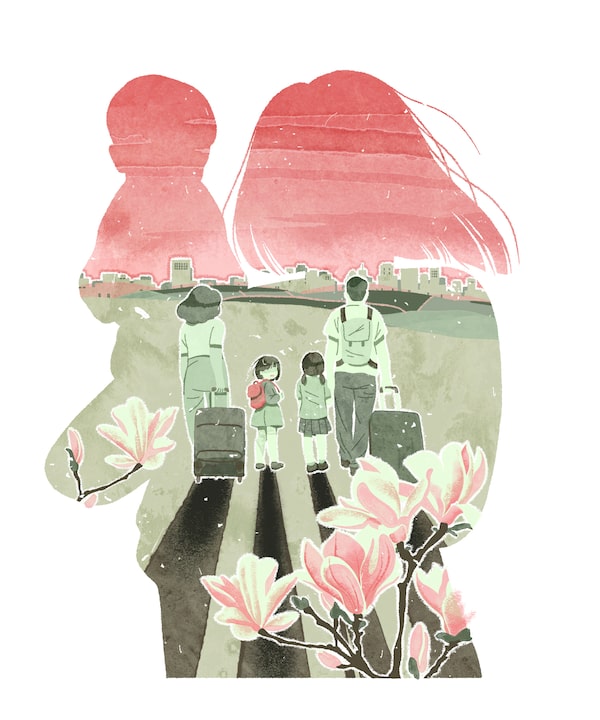
Illustration by Rachel Wada
I have a confession. Despite the fact that I, too, lived over a convenience store run by my immigrant parents, I have never watched an episode of Kim’s Convenience . I’ve heard the show is incredibly well written and witty, but in all honesty I was unsure about how I would feel watching the similarities of my childhood reality played out in a sitcom.
My parents immigrated to Canada when my sister and I were 6 and 3, respectively. They left their professional jobs behind in Taiwan, in addition to their families and friends, to give us “the best opportunities in life,” as we so frequently heard growing up. Now, raising my own three children, in significantly more privileged circumstances, I am at a crossroads – how do I give them what they need and foster their independence, yet still ensure that they live their lives with empathy and gratitude?
My father became an entrepreneur out of sheer necessity to secure a roof over our heads. With limited English skills, employment options were non-existent. They spent their savings on the purchase of a small convenience store, which we also lived above, as many families did then and continue to do so now. My mother, a former midwife and nurse, spent much of our childhood learning to speak English while being a cashier at our quaint neighbourhood corner store. I have many memories of her playing a role similar to a confused Vanna White, but instead of turning letters on Wheel of Fortune, Mom was trying to decipher what brand of cigarettes a customer wanted from behind the counter.
They worked seven days a week, 12 to 14 hours a day, often longer. As a child, I never understood why they needed to work so much or why no one ever volunteered to bake cookies or chaperone school field trips. One day, my fourth-grade teacher called my mother in to speak with her. During a class assignment, I had written a story about how “my parents love money more than they love me.” I can only imagine the embarrassment and stabbing pain my mother felt during that talk. I wish I could go back in time.
We attended a public school out of our district that comprised mostly of white children from well-to-do families. My father would pick us up and drop us off in our “secret” location a block away from the school so that the other children would not see us coming out of a clunky old cargo van, only meant for produce and non-perishables. In hindsight, I’m not sure if he was trying to hide his embarrassment or ours, perhaps a little bit of both.
Nevertheless, my parents did their best to shelter us from their daily struggles. While other kids went on ski trips and spring break vacations, my sister and I spent our free time together. Summers were completely unsupervised, consisting of entire days spent swimming in public pools, biking around the city and reading in the library: Judy Blume and Beverly Cleary, what would we have done without you?
We became experts at making our own meals, a rotating menu of Chef Boyardee, TV dinners and Lipton Sidekicks noodles. We ate our food directly from the pots that we cooked them in, and in front of the TV, watching our favourite shows. We were latch-key kids. My key was tied directly around my neck, never ever to be removed.
We used the aisles that were full of groceries as our personal playground – I’m still convinced that there are few things more fun to a child than stocking shelves or scanning lottery tickets. We had first access to the latest issues of Mad Magazine and Archie comics, expertly reading them without leaving creases.
At Christmastime, gifts were often old items around the house, wrapped in colourful newsprint. My mother was the original “zero waster.” We participated in the Inner City Angels after-school programs provided by the city. We made toys out of discarded boxes – I was so pleased that the screen of my cardboard computer “moved” by turning a roll of paper towel inside. As much as we were without, we never felt it. We were, mostly, happy kids.
People say that the world was easier back then, that it was a better place, that things are different now. In retrospect, I’m not sure if that’s true, especially for children of immigrant families. We were just kids back then, and if you had any semblance of good parents, they simply did their best at making you feel like the world was a great place.
I often find myself in awe of the courage my parents must have had to embark on their journey into so many unknowns. Their struggles motivated me to do well in school, appreciate the value of a hard-earned dollar and, most importantly, to respect others no matter what our differences. In today’s heightened climate, I believe that this has been their greatest gift.
My children are growing up with a basement full of toys, many of which bring them no more than five minutes of joy. I want them to realize the privileges and opportunities given to them that many children do without, as is the wish of every generation, and the generation before them.
As my parents did, I will try my best to expect more from them, to make them appreciate their circumstances in a world that can seem unforgiving. I want them to be curious about how others live and understand that our way of life is not the only way of life. To embrace change and overcome challenges with resilience, not fear, just as their grandparents had. And no matter what their struggles, there is always room to lend a helping hand to someone less fortunate.
To many, my childhood probably seems quite unremarkable, but to me it was a time when optimism, hope and determination collided. A moment of sweet nostalgia, when our family had no one but ourselves to lean on and that was all that mattered. Us against the world. Perhaps it’s time for me to grab a bowl of popcorn, put up my feet and find the first episode of Kim’s Convenience .
Wan Lu lives in Toronto
Sign up for the weekly Parenting & Relationships newsletter for news and advice to help you be a better parent, partner, friend, family member or colleague.
Report an editorial error
Report a technical issue
Editorial code of conduct
Follow related authors and topics
- Family Follow You must be logged in to follow. Log In Create free account
- Parent Follow You must be logged in to follow. Log In Create free account
- School Follow You must be logged in to follow. Log In Create free account
Authors and topics you follow will be added to your personal news feed in Following .
Interact with The Globe
Growing Up in America With Immigrant Parents
I wrote about how my parents taught me to love who I am by being true to myself.
Being Assyrian has always been a huge part of my identity. As a child I felt so embarrassed to be who I am. No one had ever taught me to feel that way, I just didn't like how different my life seemed to be, compared to the other kids from my school. I had a unibrow and I had to take ESL classes because I was raised learning a mix of Aramaic and English. I refused to speak Aramaic publically. I was so ashamed of all of these things for some reason. I just wanted to be like the other kids at my school, blonde hair and blue eyes with a “normal” name. I hated my brown hair, brown eyes, my unibrow, and my “odd” name (Amena).
As I grew older, I started to become more accepting towards my background. This started happening around middle school age. I realized that there was no reason for me to be ashamed. I still felt different though. No matter how much I adapted I was still being raised differently from everyone else. My parents were always more strict that the others. They wouldn't let me hangout with certain people, I was never allowed to go to sleepovers, I couldn't wear certain clothes because they were “too revealing” even if everyone else in my grade was allowed to. I think that these are just things that you have to deal with when you have Middle Eastern parents. Things that were so normal for every other kid seemed to be so unbelievably offensive to my parents. I used to think it was so frustrating to deal with this.
To this day I still struggle with their grip. I can sometimes understand and appreciate why they raised me this way. As immigrants in America they dealt with a lot of the same feelings as I felt when I was younger. They struggled with not fitting in as a child just like me. When my mother's family moved here she was only a year old. She was raised in Davisburg Pennsylvania, she didn't have anyone to relate to around her other than her siblings. She had it so much worse than I did but today she loves being who she is. My dad moved to America when he was nine. He was raised in Detroit Michigan and in attempt to fit in he had to sacrifice some of his identity. Today I see him as the one of the most confident, down to earth people on this planet. He always stresses to me that I couldn't make a bigger mistake that being fake with myself. I think that all this time my parents were trying to point me in that direction. They wanted me to love who I am. They didn't want me to try so hard to be something i'm not just because I wanted to blend in. Instead they taught me how to stay true to myself and how to be comfortable in my own skin
Although it was frustrating at times I think overall it benefited me to be raised this way. I learned to do what's best for myself and have good judgment. They taught me to be comfortable in my own skin and put myself first. They taught me that no ones opinion matters except my own. Here in America you are able to do almost anything you'd want as long as you give it your all. Being true to myself is the only way for me identify my dreams. My parents wanted to make sure that I had my priorities straight so that I can focus on what's important.
It's ironic how I learned one of the most important American values from my immigrant parents. I thought this whole time that their “Middle Eastern morals” would separate me from everyone else but really they were what made me feel comfortable with myself now. They really have taught me so much about how to live a good, happy, healthy, American life! Today I live to please myself and the ones I love only. I know now that I don’t have to attempt to make everyone like me. I do what I please while still being reasonable and respectful. The only person really judging me is myself. I live by these morals and i couldn't be any more stress free.
- Written by Amena
- From Royal Oak High School
- In Michigan
- Group 7 Created with Sketch Beta. Upvote
- immigration
- Report a problem
Royal Oak High School Ready for Fun
ELA 11 6th Hour
More responses from Ready for Fun
More responses from royal oak high school, more responses from michigan, more responses from "division", "dream", "immigration", and "love ".
I am a Latino yet not an immigrant, but my family story helped me understand their journey
I recognize that i’m seeing myself through my stepfather's eyes. this recognition also brings me closer to the latino immigrant experience..
Benigno Trigo is the Gertrude Conaway Vanderbilt Chair in the Humanities, Spanish and Portuguese College of Arts and Science at Vanderbilt University.
Vanderbilt’s new semester has begun. I teach a class on the Latino Immigrant Experience. Being from Puerto Rico (an unincorporated territory of the United States with a strong sense of its “national” identity), and being a U.S. citizen, I feel awkward, a fish out of water, leading my students through the assignments that elaborate on the experience of the immigrant.
I came to the mainland for college 45 years ago, but I don’t consider myself an immigrant.
On my first day of class, I presented and discussed the latest book by the Pulitzer Prize writer Héctor Tobar: “Our Migrant Souls: A Meditation on Race and the Meanings and Myths of ‘Latino’ (2023).”
It’s a book of personal essays that begins with a photograph of Tobar’s mother holding him as a baby. It’s 1954. She’s 20 years old, dressed simply but elegantly, her hair carefully set. Tobar tells us that she’s wearing a faux pearl necklace. In her arms, she cradles her sleeping baby, all dressed in white. They sit in front of the Griffith Observatory in California.
The picture is a figure for the main argument of the book, which is that the memories that migrants carry, float in dreamlike waters until they are anchored in history. “We arrived here like dandelion seeds, floating through the air, reaching firm ground by the blessing of God,” writes one of Tobar’s students.
Tobar calls the memories “stories of beginnings,” and they make migrants resilient. But they also hide a history of struggle and violence that needs to be uncovered to make the ground more solid for the next generation.
Another column by Benigno Trigo: Supreme Court knew that racial diversity is a matter of 'national security'
Héctor Tobar's lessons come alive in a photograph of my mother and me
In his book, Tobar lays this groundwork. He contextualizes the photograph, setting it against the history of violence in Guatemala. This violence drove his parents to the United States, and instilled in them a fearlessness and a youthful drive to make it their new country.
His father embraced the modern technology of the color camera. He framed their beginnings with a modern observatory. He tapped the scientific power of the country, whose government upended their lives. The democratically elected president of Guatemala was deposed by a coup, supported by the CIA.
To illustrate Tobar’s point, I searched my personal archive and found a picture of myself at 18 years old, as a student in a college in New England. It’s 1980. I’m almost recumbent on a wooden bench, on the campus’ green. Framed by a New England brick building, with austere white columns and a bell tower.
My mother sits behind me. She holds me, as if I was still her baby. We both look straight at the camera. I’ve always thought of this picture as a trace of the beginnings of my life in the United States.
While my stepfather is no longer in my life, I feel closer to him now
In class, my students ask me how I feel when I look at this picture now, and I confess to them that the book by Tobar has made me look at it differently. It’s made me think of my stepfather, Jorge, who stood behind the camera. He was a struggling writer from Mexico who had married my mother five years prior.
They tried to make a go of it in Mexico, but returned to the U.S. where they settled. Their journey was partly the result of Cold War politics in Puerto Rico, of my mother’s struggle for independence, and of both their efforts to become writers against all odds.
I told my students that I now realize that the photograph is in part a message from my stepfather. It’s a testament to his struggles. It was his attempt to document a rebirth, a new family, in the United States.
My mother and my stepfather divorced, and I never saw him again. But Tobar has made me see that I’m closer to Jorge than I thought.
I recognize that I’m seeing myself through his eyes. And this recognition also brings me closer to the Latino immigrant experience.
Raised By Immigrant Parents: First Generation Mental Health

What's your struggle?
Immigrant parents often teach only what they’re taught. So how can their first generation children feel seen and supported in their mental health struggles?
Being raised by immigrant parents can come with numerous advantages. Our families are tight-knit; we’re connected to our roots; and we receive exposure to multiple cultural perspectives. This kind of background enriches kids’ lives.
In some circumstances, however, being first generation creates mental health hurdles. Our parents have high expectations of success for us. But many of our parents simply haven’t engaged with their own emotions, and don’t see why we have to address them. We can’t ignore the mental health challenges specific to being a child of immigrants–many of which come from avoiding emotional talk altogether.
What’s it like to be raised by immigrant parents?
Immigrant households tend to emphasize the importance of family, cultural connectivity, and religious heritage–all of which can bolster mental health. Having a clear cultural background helps define your identity, and helps you connect with others who share the same heritage. Being raised by immigrants, in some ways, helps you to stand out in a world of conformity, bringing important differences to the table.
But while all of these qualities are positive, some traditional values can negatively impact a young adult’s mind. Some emotionally straining traditions include strict discipline, limited autonomy, and academic or financial pressure. The increased expectations of first generation kids, combined with our parents’ reluctance to address mental health, can set us up for major emotional struggle.
Controlling behavior
Controllingness is a negative trait common to immigrant parents that hurts a child’s development. Take a couple examples from my own childhood: I wasn’t allowed to have a sleepover with anyone as a child. I also never attended anyone’s birthday party because my parents didn’t know the other child’s family, and didn’t want to interact. I understand that my parents were being protective, but I know I missed out on key childhood experiences.
This type of controlling behavior can extend past childhood, into young adulthood, too. Traditionally, young adults in a first generation immigrant household only leave the house to get married. However, a new generation of college students has been pushing the limits on autonomy and independent living. We’ve begun to set our own path, which, in a way, threatens tradition.
When I moved away for college, my parents wanted me to come home every weekend. I understood that I was the first to leave home for reasons other than marriage, but to come home every single weekend was a major demand on my newfound freedom.
Limited autonomy
Limiting autonomy is another normalized negative value common within immigrant communities. Control and limited autonomy go hand in hand. For example, when I turned 16 and got my license, my mom started tracking my phone. Sure, I got a little bit more freedom, but it soon turned to paranoia because I felt my parents watching my every move. Loss of autonomy like this can lead to to depression and loss of identity.
Academic pressure
Academic pressures include pushing success onto the children of the family. As the daughter of immigrants, I understand the sacrifices behind my parents’ story; perhaps a little too well, in a way that induces guilt and pressure.
They have told me repeatedly that my education and success is the only way out of poverty–the same poverty they escaped from in their home country. Their wellbeing is on my back since their sacrifice, in theory, laid the foundation for my success.

The education systems in our parents’ home countries are often not the best in the world, at least in my family’s experience. Instead of receiving a proper education, immigrant parents often began work at a young age in order to survive.
Therefore, education is seen as the way out for the children of immigrants. My parents never directly pressured me, but I understood their expectations. The dependence on our success leads to a strain on first-generation American students. Due to our parents’ hard work, we have the privilege to be able to attend higher education institutions. Even if it doesn’t feel like the right path, we feel pressured to get the education our immigrant parents always imagined for us.
High expectations and fear of failure
My parents look to me to succeed, which adds an additional pressure on top of maintaining mental health and having a healthy social lifestyle.
As we children of immigrants grow older, we begin to fear our parents’ disappointment. We begin to fear failure. You might have the intrinsic motivation to succeed, but knowing that your parents’ future relies on your success has can send you into a depressive episode or worse.
As first-generation Americans and first-generation students, there is no room for error. We cannot afford to fail. Our parents’ stories, their struggles, their sacrifices have given us incredible opportunities, and immense expectations to live up to.
Clashing expectations from family and mainstream culture
Many immigrants’ backstories consist of having to work from a young age in order to make a sustainable living in their new country. Thus, generational differences between immigrant parents and their children are significant. First-generation Americans grow up in a completely different environment and society than their parents did. There are different norms which immigrant parents aren’t aware of, or don’t care about.
For example: the normal American teenage experience is something our immigrant parents were never introduced to. Immigrant parents tend to lack familiarity with the typical experiences of a high-schooler here. American standards can even clash with traditional norms, especially when it comes to the treatment of daughters versus sons.
Gender-based double standards
First generation hispanic households tend to be more strict with the daughters of the household in contrast with the sons. Treatment of daughters tends to be more protective, strict, and controlling. The difference between this reality at home and mainstream assumptions underlie deep emotional struggle for daughters of immigrants. We don’t always have the same freedom as our peers, and comparison highlights the pain in that difference.
Living in the constant clash between cultures is an exhausting experience. From academic pressures to dissonant cultural values, the mental strain on first-generation Americans and students is a significant one.
How do immigrant parents see mental health?
Many people who come from an immigrant family recognize that parents tend to turn a blind eye to the negative values embedded in their culture. We tend to highlight the positives and hide the negatives, even behind closed doors, within our families. But when it comes to mental health, we desperately need openness.
Due to the lack of awareness among immigrant parents, they may see depressive symptoms and mislabel them. They may call your symptoms “laziness” and dismiss the struggle. In their eyes, there’s no room for depression. The values they grew up with never let them consider what “mental health” really means.
That brings up another unnamed pressure put on the first-generation Americans: to educate our immigrant parents on what our unimagined struggles consist of.
Maslow’s hierarchy of needs: immigrant edition
One concept I’ve personally thought about and have connected to my immigrant parents is Maslow’s hierarchy of needs . This concept depicts the different levels of human needs, and the idea is that you can’t address higher-level needs before meeting the more basic ones.
When immigrant parents arrive in a new country, their struggle revolves around meeting the most basic of needs. They work hard, deny themselves comforts, to put food on the table and pay rent. In trying to secure these foundational survival needs, their emotional needs became low-priority. All of their hard work and sacrifice was needed secure the bottom of Maslow’s pyramid.
Parenting style
Where do we, children, fall into this picture? Our parents covered an important level of basic needs for us, and now, we have the ability to grow and strive for self-actualization and self-awareness. Since they could not satisfy this level of emotional need, themselves, the lack of emotional fulfillment translates into their parenting styles.
They may experience depression symptoms, but they probably aren’t cognizant enough to realize their own mental health struggles. They won’t make a bridge towards an actual solution. They’ll only teach what they have been taught. Repression and moving on without healing is an example of the way that immigrant parents react to mental health struggles.
This cycle of generational repression is another negative emotional value within the Hispanic/Latinx community. Families don’t seem to have a way to communicate emotional needs. We don’t talk about it. We let it happen until the need to talk it out is gone. This cycle can lead to serious problems in a family’s dynamic; parents get involved once it is too late and the child’s mental state has worsened.
How do I start the conversation with my immigrant parents about mental health?
First, you have to work up the courage and patience to gain their understanding. This is a serious topic, even though immigrant parents seem to dismiss it often.
After working yourself up to start the conversation…
Lay out points about what depression is and the symptoms that accompany it.
What is depression?
Depression varies from person to person. Different symptoms may arise differently. You might experience a single depressive episode or suffer from chronic, clinical depression. One person’s depression may leave them fatigued and hopeless, while another’s drives them to keep busy to ignore the pain. Again, symptoms vary.
Signs of depression include but are not limited to:
- Changes in sleep
- Changes in appetite
- Lack of concentration
- Loss of energy
- Hopelessness or guilty thoughts
- Lack of interest in activities
Tell them how depression has affected your life…
Talk about which symptoms have been prominent in your experience. Some examples can include:
- Not wanting to go to school
- Not wanting to eat regularly
- Struggling to maintain a daily routine
- Struggling to get out of bed
Show them you’re not alone in your struggle…
Although the focus should be about your own struggles, it is sometimes easier to understand a new concept when it’s related to a larger population. For example…
- List statistics relating to your community’s mental health
- Do a little bit of research about your community’s mental health
- For example: In a study, it was found that U.S. born Latinos were at a higher risk of depressive episodes than those who immigrated to the U.S

Introduce the differences brought on by culture and society…
There is an obvious difference in societal upbringing from your parents generation to yours.
- There are different expectations.
- Although you are from a cultured household, American society has different norms that you experience no matter how traditional you may be
- Different norms bring up identity issues, which may lead to a larger problem
Are there any potential ways your family contributes to your mental health?
The pressure to succeed is a huge weight to carry, but think about the other causes. What have your parents gone through that blurs their way of seeing the importance of mental health? What behaviors of theirs contribute most to your wellbeing (or lack thereof)?
Ask for what you want and need
Think about solutions to what you’re going through…
- Family support and understanding
- Greater freedom and autonomy
- Professional help including therapy
If you can’t make them see your struggle….
Seek help. Help doesn’t always have to be therapy. Finding someone who understands your struggle can be a useful way to air grievances. Whether it be a friend, a mentor or a sibling, it’s important to find someone who can help ease emotions.
Slip in statements about your feelings. Depression and mental health in general can be a very hard topic to speak about. If over time, parents begin to see a negative pattern, they’ll be sure to bring it up because it should concern them.
Understand their struggles. Immigrants have often had a difficult childhood of their own. They might not be able to understand your struggles if they never had theirs addressed either.
This article is part of Supportiv’s Amplify article collection .
Read more on, similar articles, i hate myself: beat low self esteem + feeling broken, when model minority asian stereotypes define your identity, scorned for seeking help as a filipino american, mixed race mental health: thinking in brown and white, let's start the conversation.
- Conversational Arc
- Data & Ethics
- Supporting Science
- Tech & Data
- Testimonials
- Versus Competitors
- Resource Library
- Behavioral Health / EAP
- Medicare / Seniors
- Military / Veterans
- Population Health
- Public Sector
- News & Updates
- IP Licensing
- Privacy Policy
- Terms of Use
© 2024 Supportiv. All rights reserved.
Supportiv does not offer advice, diagnosis, treatment or crisis counseling. Peer support is not a replacement for therapy. Please consult with a doctor or licensed counselor for professional mental health assistance.
Supportiv products and services are covered by one or more US Patents No. US11368423B1 and US11468133B1.
For anonymous peer-to-peer support, try a chat .
For organizations, use this form or email us at [email protected] . Our team will be happy to assist you!
- Zoom Demo or Meeting
- 1,000 - 5,000
- 5,001 - 20,000
- 20,001 - 75,000
By sending you accept our Privacy Policy
Find anything you save across the site in your account
How Immigrant Parents Say “I Love You”
By Meghana Indurti

After working a hundred hours a week on top of navigating a new culture and country, immigrant parents may not always have the time or the energy to share Hallmark aphorisms. But, if they love you, these are the ways they’ll let you know.
Silence A picture is worth a thousand words, but silence from an immigrant parent after you’ve completed a task is worth a million. It means that you didn’t do anything wrong—yet! Now go clean the garage; someone is coming over for lunch in sixteen weeks.
Fruit cut up and delivered to you on a plate, unsolicited The less necessary it is to cut up the fruit, the deeper their love for you. If they’re slicing bananas, you are the light of their lives.
Lack of physical touch Physical touch may be an “official love language,” according to the Instagram Explore page, but trying to hug your stoic father at Patel Brothers is basically unacceptable P.D.A. Danny Tanner “Full House” hugs are science fiction.
Forcing you to do Kumon homework for three hours That’s called quality time, O.K.? Sure, you’re not talking to each other, but your parents are sitting nearby, reading newspapers filled with misinformation and glaring at you every time you get up to pee, like they’re Amazon floor managers. That’s what love is all about.
Doing things you didn’t ask them to do Is your gas tank suddenly full? (With gas from Costco, of course.) Are there seventeen bags of Famous Amos chocolate-chip cookies (which you casually mentioned you liked in 2006) in the cupboard? Did your mom hand you fifty dollars for a cup of coffee, to “cover tax”? Did your parents angrily stuff Vaseline, Ziploc bags, and dish sponges into your purse? Accept these gestures, whether you already have several tubs of Vaseline or not. And don’t you dare say thank you.
Bombarding your phone An image of a flower with “Good morning” written on it in a serif font. Memes about Jesus. Forwarded texts on WhatsApp. Fifteen missed calls. Consider each a reminder that you’re in their thoughts. And when you do finally answer the phone, only to sit in silence for an hour while being berated about not having kids yet, what they’re trying to say is that you are their reason for existing.
Sending Google alerts about homicides in your area “Your area” means anywhere within a three-hundred-mile radius of you. Similar to their asking for the exact time you will be home, this will do absolutely nothing to insure your safety, but it will make them feel better.
Roundabout questions Immigrant parents, incapable of asking “How are you?,” will instead ask when you last had the oil changed in your car, or if you mailed in your tax return yet. Also: Have you eaten? Have you been incorporating enough milk into your diet? Whatever amount of milk you’ve been drinking, it’s wrong. If they really want you to open up, they’ll put on a movie from the sixties and explain the plot in excruciating detail until you interrupt them with an update on your relationship status.
Killing mosquitoes Who else would murder for you? And who else would do it with a forty-two-hundred-volt tennis racquet? You can ask for no deeper love.
Arguing with you, then feeding you It would be ideal if you were hungry every fifteen minutes so that they could feed you. And nothing makes people hungrier than a shouting match about politics.
Asking about a friend you haven’t thought of since the Bush Administration How’s Corinne doing? You have no idea. They may not know the names of any of your current friends or your job title, but what their interest in Corinne really indicates is that they care about you. That’s right: it was never about Corinne.
Going the extra eight thousand miles for you They left behind the only life they’d ever known to move to a foreign place called Paris, but in Ohio. They accept their new reality of not following the metric system and being served tea without milk in it. They said goodbye to their friends, family, and entire network to adapt to a culture where they must keep up with both the Kardashians and the Geico cinematic universe. They did all this just to give their kids the opportunities they never had—to grow up safely, go to a good school, and eat funnel cake at Six Flags. ♦
- I am a Tinder guy holding a fish, and I will provide for you .
- How to turn off location tracking (updated).
- Subway crushes: Where are they now ?
- My typical New York day .
- Achievable ways to feel accomplished .
- You have to watch this show .
- Updates from your FedEx package.
- Get more humor in your in-box. Sign up for the newsletter .
Daily Humor
By signing up, you agree to our User Agreement and Privacy Policy & Cookie Statement . This site is protected by reCAPTCHA and the Google Privacy Policy and Terms of Service apply.

By Eric Lach

By Adam Iscoe

By Ronan Farrow

By Andrew Marantz
in all things is a publication of the Andreas Center at Dordt University

- The Archives
My Immigration Story

I am a child of immigrants. In the 1950’s my grandparents emigrated from the Netherlands to Canada along with my parents who were young at the time. I was born and raised in Canada. Being the child of immigrant parents was the most normal thing I could imagine. Growing up, nearly all my friends had parents who were born in another country. When I moved to the United States in 2005 it did not seem to me at the time that I was doing anything particularly difficult or new. The border between Canada and the U.S. was merely a stoppage on the highway, a barrier that is crossed all the time. I entered the United States on an R-1 visa (Religious Worker Visa) that took only minutes to receive after I handed the security officials my paperwork. It was good for three years and renewable for another two. This meant that I would not have any immigration issues at least until 2010, and even after that getting a permanent status (Green Card) was not seen as a difficult process.
However, between 2005 and the renewing of my R-1 Visa in 2008, things began to change. I knew something was different when an FBI agent had to visit with me and the chair of my church council. Nothing seemed guaranteed anymore. At one point the FBI agent had to physically touch the church wall so that he could write in his report that the church existed. Yes, he actually touched the wall to make sure! “Okay, so they are a little quirky,” I thought. The visit did get me thinking about moving ahead on applying for a Green Card sooner rather than later. With the help of my church and an immigration lawyer, this is what we did.
Thus began my odyssey with U.S. Immigration in the year 2010. Looking back on my calendar notes of that year, I see written prominently on a number of months the name of my immigration lawyer and her phone numbers. After filling out the application and getting all the materials together, a rejection letter was the first thing I received from the immigration office. This would be followed by several more. Usually it was a matter of something not being filled in correctly or some question that had not been answered. Each time my lawyer would get back to the work getting my application ready for resubmission. The key date for me in 2010 was April 11. As of that date I would no longer be a legal resident, able to work in the U.S. The date came and went and no Green Card had been issued. I requested that the church treasurer stop paying me as of that date because I was advised that it would be illegal to work and receive payment. I did not want to give U.S. Immigration an excuse to reject my application or even deport me. I continued to work but I did so as a volunteer (I had church services to lead and a class to teach at Dordt College).
By May 16, I was finished. I was working as a volunteer and not being paid. I was growing frustrated with a system. I also began to see a subtle but racist attitude among the people of my community. I told the chair of the church council I would no longer work at the church and that he had to find pulpit supply until this was resolved. He was always very supportive, having himself been an immigrant from Canada. Although people in the church and community were supportive of me, there were many people I met who thought the situation was rather funny. When I explained that without action from U.S. Immigration I could be deported, the common response was “Oh, they wouldn’t do that to you.” Why? Because I was white? They did not say so, but I knew this is what they were thinking. I became increasingly irritated. It became clear to me that many of the good, law abiding citizens of Sioux Center saw the U.S. Immigration issue pertaining just to the Hispanic community. Many of these same “God fearing” citizens would speak in support of a vile congressman who referred to immigrants as “stray cats” saying that if you fed them they would keep coming. Along with him, they did not get it.
During this time I also realized that my driver’s license had expired. I could only have a license for as long as my R-1 visa said I could be in the country. My immigration lawyer said she could write me a letter stating that since I had an application on file, I could be eligible for an extension on my license. Armed with this letter I went to renew my license at the local driver’s license office. The first question the woman asked me was, “Are you a citizen of the U.S.?” I answered truthfully, explained my situation and showed her my letter. She said she could not give me a license. I replied, “If I had said I was a U.S. citizen you would have pushed a button and I would have had a driver’s license.” Her response was, “Yes, but then you would have lied.” By this point I felt a frustration and an anger that I had never felt before. In the presence of many Hispanic immigrants who were also in that office I said, “And why do you think we lie?!” I felt humiliated, helpless, and very angry. I told the person I would continue driving despite not having a license and she could do with that information what she wanted. I stormed out of the office.
Not having a valid driver’s license is a weird feeling. You are cautious never to exceed the speed limit. You drive out of your way to go down a different street if you see a police cruiser on another. You know that if you’re caught, a fine was the least of your problems. You could be given a one way passage back to your country of birth. I was an illegal immigrant in Sioux County, driving a car without a valid driver’s license. “So be it,” I thought.
Meanwhile my application was still in process. I was informed I needed to be finger printed and have an eye scan at an office in Sioux Falls (this also had been done in 2005 and 2008). At one point my application was rejected because I had paid too much for what I thought was the fee. Another time it was rejected because the “medical report” had been opened (they had opened it). This required a new medical report with a new signature from the approved medical doctor. The approved doctor’s office was in Sioux City–45 miles away from where I live and 86 miles from Sioux Falls. The comedy of errors continued for about eight weeks. Everything finally came to a resolution when we contacted our senator and put his office on the case. Within a week of contacting the senator’s office, I had my Green Card. If only we had contacted him sooner!
Immigrating to the U.S. is not for the faint of heart. It requires patience and a willingness to be subjected to finger printing, medical exams, intrusive questions, rejection, and so forth. It is easy to succumb to anger and frustration and many times this is what I felt. The whole system seems designed to frustrate you to the point that you quit and leave. I wonder how many do leave or quit. In the end, I can’t help but think how much harder it would be to go through all this and not speak English or have an immigration lawyer working for me. Most Americans only know the issue from the limited coverage of it on the news. They only know it to be about “other” people who perhaps do not work, commit crimes, or are involved in the drug trade. This limited view is so wrong. Most immigrants work, obey the laws of the land, pay their taxes and are contributing members of the community. On that note, I remain happy to be here.
We are sharing immigration stories at iAt this week.
On Monday, John Lee shared his immigration perspective in Immigration: A Tale of Two Grandfathers . Rikki Heldt gave her testimony of hearing God’s call from behind the Berlin Wall to a teacher in Iowa in Welcome the Stranger on Tuesday.
Do you have an immigration story you’d like to share with iAt? Email [email protected] to share you story with us.
About the Author

Mark Verbruggen is a pastor at First Christian Reformed Church in Sioux Center, Iowa. Beginning in the spring of 2017, he will be leaving Sioux Center in order to become pastor at Living Hope Christian Reformed Church in Sarnia, Ontario.
View all posts
What are your thoughts about this topic?
Leave a reply cancel reply.
This site uses Akismet to reduce spam. Learn how your comment data is processed .
Thanks for your story Pastor. It would be interesting to know how your parents became citizens of Canada. My father, an immigrant from the Netherlands, had a sponsor, which was a requirement in the early 1900’s. National security (also security for individual citizens) is the issue today that they did not have to deal with in the earlier days of the nation. May God provide some wise leadership for our nation to help develop immigration laws that are just (and use common sense).
Yes my grandparents would have had sponsors as well. It seems that back in the 1950’s the whole system was much simpler!
Thanks Mark. I never realized the extent to which the word “Services” in U.S. Citizenship and Immigration Services was Orwellian (I’m thinking in particular of your line, “The whole system seems designed to frustrate you to the point that you quit and leave. I wonder how many do leave or quit.”) Maybe it’s xenophobia that’s being served.
I was struck by that line too! I had never thought of it that way before. Thanks for spurring our thinking.
Politicians on the far right or left pander to the fears that their supporters carry in their day to day life. Xenophobia works because it sets up a straw man which can be blamed for things in their own life that are not going well. In this case “immigrants”.

I’ve experienced some of the hassles you have had in my dealings with immigration over the years, so I agree with your comment. What’s so curious is that this situation exists in a country that describes itself as a nation of immigrants and has engraved on one of its most iconic national symbols the lines “Give me your tired, your poor,/Your huddled masses yearning to breathe free,/The wretched refuse of your teeming shore./Send these, the homeless, tempest-tost to me”. It seems the system is designed to keep these very people out.
Thanks for all the comments.
Something I did not mention in the article (but I will now!) is this: at what point should Christians dare to become more of a prophetic voice speaking out against a politician who clearly does not want to fix the immigration issue? I have no problem with people being loyal to one political party but when the congressman representing that party does not have any desire to work for justice and fairness on this issue (and perhaps others), when should the christian community be challenged to consider voting for someone else? This might mean voting for a party one does not like and has never supported, but maybe that is what we should consider doing. Many Christians in Sioux county never think beyond party politics.
Ideally, it would be great for a person to come forward who is not so tied to the “tea party” base. Let him or her run against him. Polls show that most Americans are not happy with congress and their work, yet ridings continue to send their personal dysfunctional member back to Washington election after election.
Mark, I think that you are a little too harsh on judging the motives of Rep. King. He may have a different philosophy on “justice and fairness” that you refer to, but I don’t think that you are correct to intimate that he does not want immigration reform. I am also displeased with some of Rep. King’s actions but I would allow Christians to decide which party platform meets the values that they adhere to. That is why some voters vote straight party tickets and others like myself will vote per individual. Each of us needs to evaluate that according to our own conscience and the biblical norms than we believe in. May God’s Spirit lead us on all issues that we deal with in His world.
Such good food for thought, and hearing a first-hand account of the frustrations of trying to do things right–even while illegal–helps to humanize an issue that is all too often only heard about through soundbites and 30-second news clips. Thanks so much, Mark, for sharing your story with us! I am struck by the thought of how many times Israel is commanded to care for the foreigners, the sojourners, the aliens throughout scripture. How are we loving our neighbors–whether immigrant or native born–as ourselves?
Clap. Clap. Clap. Clap. Clap. So well said.
A former student of mine sent this my way; I am a Canadian who has been working in MPLS for the last 6 years. I am currently going through very similar immigration struggles and resonated all too well with your article. Additionally, I understand the frustration of the responses people provide to my plight and what it reveals about the lack of understanding about immigration in the first place. I am waiting to hear back from my third appeal to try to obtain a permanent visa but am being denied because as a Christian school teacher, I do not make enough money to be considered valuable to this country. It’s quite the process – thanks for sharing your journey!
Glad to do it!
This is a great story. Thanks for sharing. It takes patience and lot of prayers too. Especially now that the immigration policy is extremely strict in terms of applying a visa especially citizenship. An immigration lawyer is also a big factor. It is costly at times, but they can be a big help. TL Brown Law is a firm that I consider consulting with. I hope I can get mine too.
This story is really inspiring, it is the inspiration to peoples how to recover from the situation which are against sometimes.
- What do Professors do all Summer? June 29, 2023
- Rehumanized Christian Masculinity: A Review of Non-Toxic Masculinity June 28, 2023
- We Need Faithful Farmers June 27, 2023
- A Proton’s Pilgrimage: A Review of Dawn June 22, 2023
- Cultural Contours of a Christian Worldview: A Review of Biblical Critical Theory June 20, 2023
Popular Topics
The Star Edition Change Location
- Manage Profile
- Subscriptions
- Billing Information
- Saved Articles
- Newsletters
- Notifications
- Today’s Paper

Star immigration reporter Debra Black
- Copy article link
Norman and Lilian Black loved Toronto in the postwar years. They came here in 1948 from Wales in search of a better life.
- / FAMILY PHOTO
- Immigration
Toronto Star reporter Debra Black writes about being the child of immigrants to Canada after the Second World War.
Personal Essay: My parents came in search of a better life
- Share on LinkedIn
- Share on Reddit
- Share on Whatsapp
My parents came to Toronto in 1948 from Cardiff, Wales. They were part of a wave of immigrants — 7,985 — who came to the GTA from the United Kingdom between 1941 and 1950, according to data from Statistics Canada that the Star requested.
At the time, immigrants from the UK were the largest single group who came to this region, followed by immigrants from Poland, Italy, Ukraine, Germany and the Netherlands.
My parents, Norman and Lilian Black, came to build a better life. They came as newlyweds with three other couples. Their first place of residence was an apartment somewhere in Kensington Market. The family story about the apartment is that they spent the only money they had on insect and rodent repellent.
It is hard to know if it was true, since both of them are dead. But it makes a lovely story to pass on to my son.
They came with little money, but a lot of enthusiasm about their future and the future they wanted for their children. My father felt that if they stayed in Wales they faced a life that had little opportunity. My dad felt that life in the United Kingdom after the Second World War was restrictive, class-based and elitist.
They loved Toronto in those postwar years. But two of the other couples returned to Wales because they weren’t happy in Canada. Still, their first years were tough and my father made a living working at the Massey Harris, later Massey Ferguson, tractor plant, before moving into sales and real estate. He eventually set up his own real estate firm and became president of the Toronto Real Estate Board in the 1960s.
My parents were initially happy. They had three children — first me in 1954 and then my brother David and my sister Corinne in rapid succession, but eventually they parted ways and divorced. While my mom wasn’t as successful professionally, she was able to find work to support herself and us at Canada Post and the Bay.
Neither of my parents ever regretted their move to Canada and the decision to build a life here — even after the divorce. My mother’s family would often suggest she move back to Cardiff, Wales with us. She wouldn’t even think about it. She hated the idea of moving back. She loved Canada and she loved the freedom her life here gave her. As did my father. I’m forever grateful for that.
I used to wonder what my life would have been like if my parents had stayed in Cardiff and not come here. It is impossible to predict. But I know the opportunities that I had — to go to university and to pursue a career I loved in journalism and to travel across the country and around the world — might not have been as easy to come by in the United Kingdom.
What’s more, my father’s feelings about the classist, elitist nature of society in Great Britain proved to be the case through the decades. And it is still evident today. Even now when I go to England to visit, I am surprised by the class-based, elitist attitudes and xenophobia that permeates many parts of society there, particularly in the major urban centres.
My parents were proud to be Canadian citizens. And I’m forever grateful for the fact they had the foresight to move here — to want a better life for both themselves and their children. And while those who are coming here today may face different barriers than they did, I understand only too well their wants and fears and their search for a better life.
Are you the child of an immigrant or a recent immigrant to Canada? Let us know how you feel about the decision your parents made or you made to move to Canada. Email your story to [email protected]
You Might Be Interested In
- Dec 31, 1969
More from The Star & partners
Save asset to your list, please log in to use this feature, supreme court rules military judges sufficiently independent from chain of command.
- 14 mins ago
First court appearance for boy and girl charged in death of Halifax 16-year-old
- 15 mins ago
Minister 'outraged' after AFN national chief's headdress taken from Air Canada cabin
- 16 mins ago
Canada recognizes housing as a human right. Few provinces have followed suit
- 48 mins ago
Nova Scotia pair face weapons charges after New Brunswick border search
- 56 mins ago
Top Trending
Jury acquits umar zameer as judge gives rare apology: 'deepest apologies for what you have been through', sophie gregoire trudeau gets candid about her justin trudeau split, the pain of her eating disorder and her new book: 'nothing is perfect", these changes in eating habits can be a warning sign of dementia and alzheimer's disease, experts say, lisi tesher: i used to think the world of my niece. but when i picked her up at the airport recently, she was so drunk that she vomited into a plant. should i tell my brother ask lisi, cottage listings to rise as owners try to sell before capital gains tax changes kick in, realtors say.
Limited time offer.
Sorry , an error occurred.
Account processing issue - the email address may already exist
Sign up with
You're all set!
Thank you .
Your account has been registered, and you are now logged in.
Check your email for details.
Invalid password or account does not exist
Sign in with
Reset Password
Submitting this form below will send a message to your email with a link to change your password.
Forgot Password
An email message containing instructions on how to reset your password has been sent to the email address listed on your account.
Email me a log in link
Promotional offers.
No promotional rates found.
Purchase Gift Purchase Access
Secure & Encrypted
Secure transaction. Secure transaction. Cancel anytime.
Your gift purchase was successful! Your purchase was successful, and you are now logged in.
A receipt was sent to your email.
An error occurred
Calculate for all schools
Your chance of acceptance, your chancing factors, extracurriculars, writing about being a first-generation immigrant in my college essay - tips.
Hi all, I'm a first-generation immigrant and I want to write my college essay about how this experience has shaped me. I'm not sure how to approach this topic without sounding cliché. Does anyone have any tips or suggestions for writing about this? Thanks in advance!
Hi there! Writing about your experience as a first-generation immigrant can make for a powerful essay. However, keep in mind that it is a common topic among immigrants. To avoid sounding cliché, try focusing on a specific aspect or unique experience that has had a significant impact on you.
For example, instead of talking about the general struggle of learning a new language, you might share a specific conversation you had and what you learned from it. Or instead of writing generally about struggling to fit in, you could share an experience where someone was rude to you for being foreign, and how that motivated you to start sharing your culture more openly.
You can get more advice in our blog post on cliche essay topics + how to fix them: https://blog.collegevine.com/cliche-college-essay-topics
Finally, remember to show rather than tell. Use vivid details and anecdotes to illustrate your experiences, so the reader can truly understand and connect with your story. Good luck with your essay, and I'm sure you'll create a compelling narrative!
About CollegeVine’s Expert FAQ
CollegeVine’s Q&A seeks to offer informed perspectives on commonly asked admissions questions. Every answer is refined and validated by our team of admissions experts to ensure it resonates with trusted knowledge in the field.
18 Essays About The Immigrant Experience You Need To Read
These stories illuminate what it takes, and what it means, to uproot your life in one country and begin it again in a new one.

BuzzFeed Staff
Growing Up American In Gaza Taught Me What We Owe To Refugees — Rebecca Peterson Zeccola
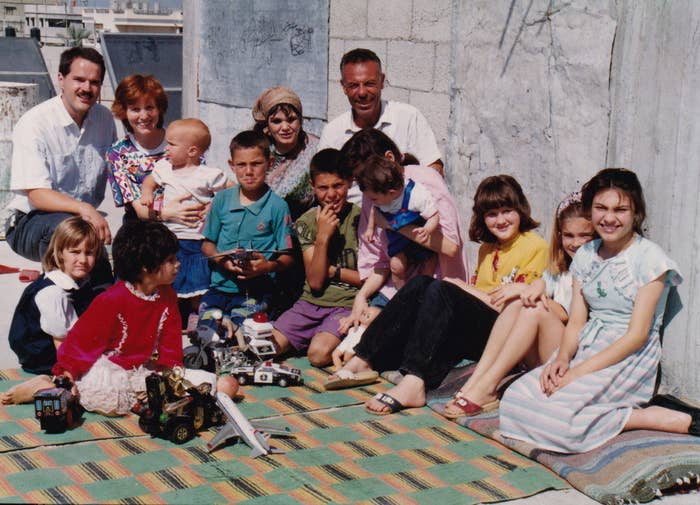
"In Palestine, we could so easily have been treated as the enemy, but we were welcomed like family."
I’m Not OK With Being One Of The Lucky Muslims — Romaissaa Benzizoune

"This weekend’s immigration order doesn’t apply to me or my family; I’ll be fine. But so many others I know and love will not."
I Grew Up In The Rust Belt, But I'm Not In Any Of The Stories About It — Alia Hanna Habib
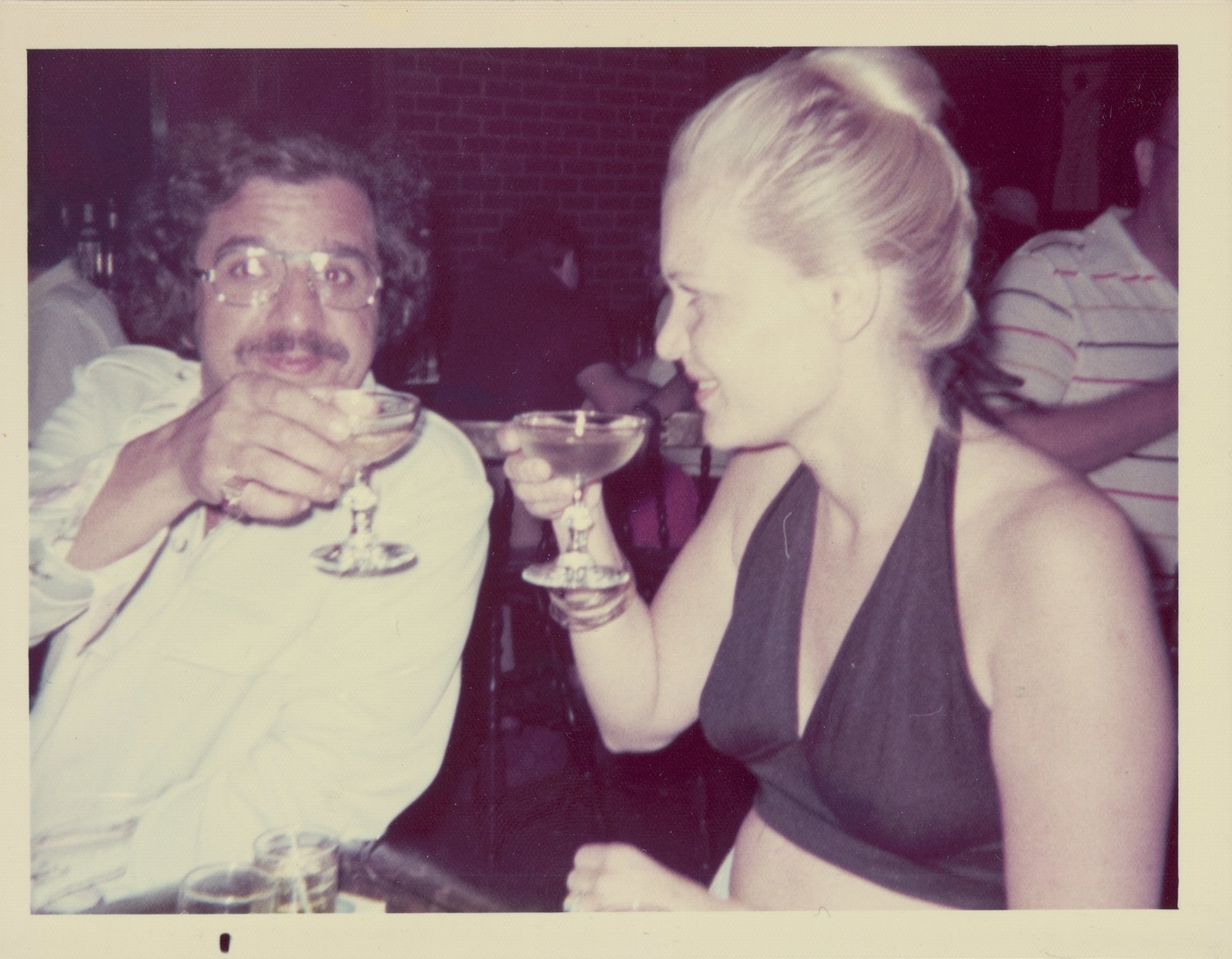
"It’s strange to see the media turn its attention to places like my hometown in coal-country Pennsylvania and find that my experience there, as part of the non -white working class, is still invisible."
Here’s What I’m Telling My Brown Son About Trump’s America — Mira Jacob
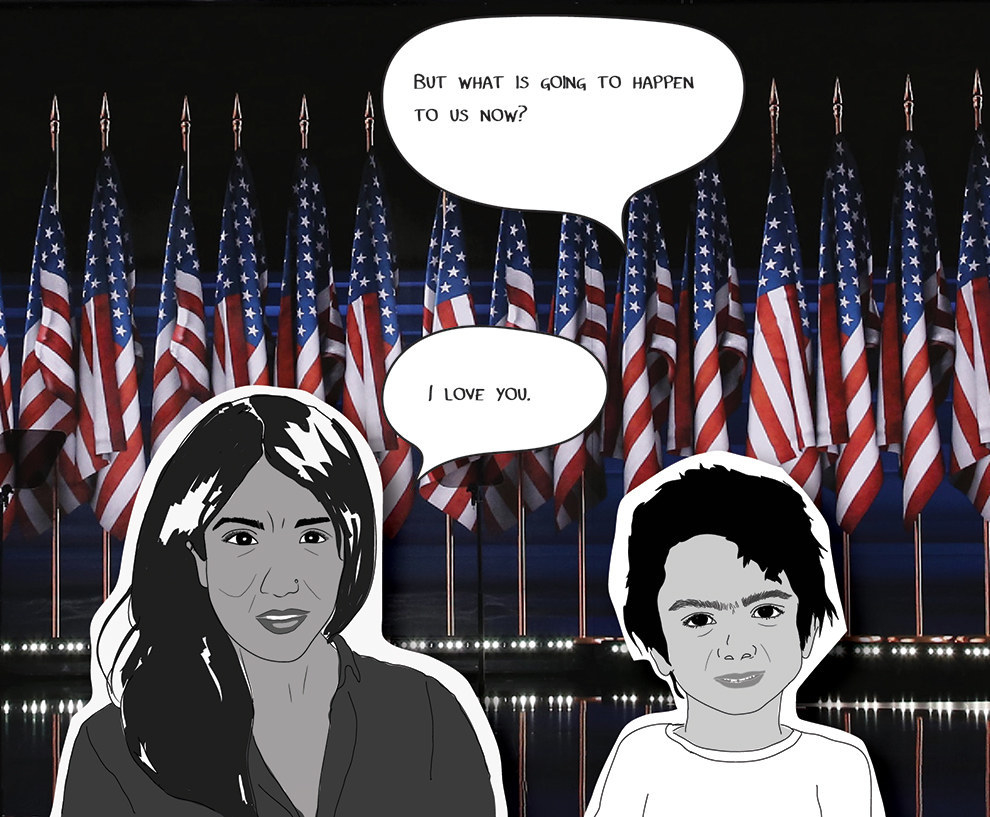
"Sometimes I wish I could ask America when, exactly, it made its mind up about us. The myth, of course, is that it hasn’t, that there is still a chance to mollify those who dictate the terms of our experience here, and then be allowed to chase success unfettered by their paranoia. To live, as it’s more commonly known, the American dream."
There’s No Recipe For Growing Up — Scaachi Koul

"My mom’s Kashmiri cooking has always tethered me to home. So it’s no wonder she won’t give me (all) the secrets to doing it myself."
How I Learned That Beauty Doesn’t Have To Hurt — Sonya Chung

"Growing up in a Korean American family, I absorbed the idea that any feeling of pleasure comes at a cost. But as I get older, I’m realizing it doesn’t have to work that way."
Why Brexit Has Broken My Heart — Bim Adewunmi

"As a child of immigrants, I am deeply ashamed that this is who we are."
I Found A Home In Clubs Like Pulse, In Cities Like Orlando — Rigoberto González

"I cherish the time I have spent in clubs like Pulse in cities like Orlando, where gay Latinos — the immigrants, the undocumented, and the first-generation Americans alike — gravitate because we love men and we love our homelands, and that’s one of the places our worlds converge."
Making Great Pho Is Hard, But Making A Life From Scratch Is Harder — Nicole Nguyen
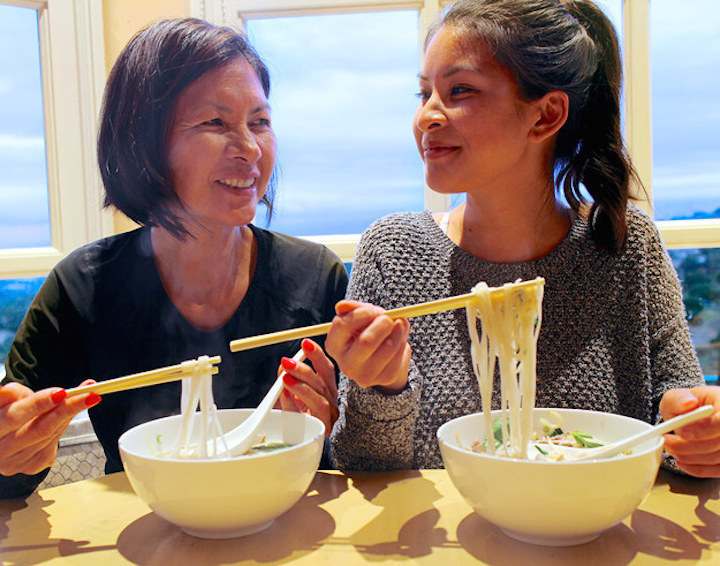
"After fleeing Vietnam, my parents turned to food to teach us about what it means to be Vietnamese."
When Home Is Between Different Countries And Genders — Meredith Talusan
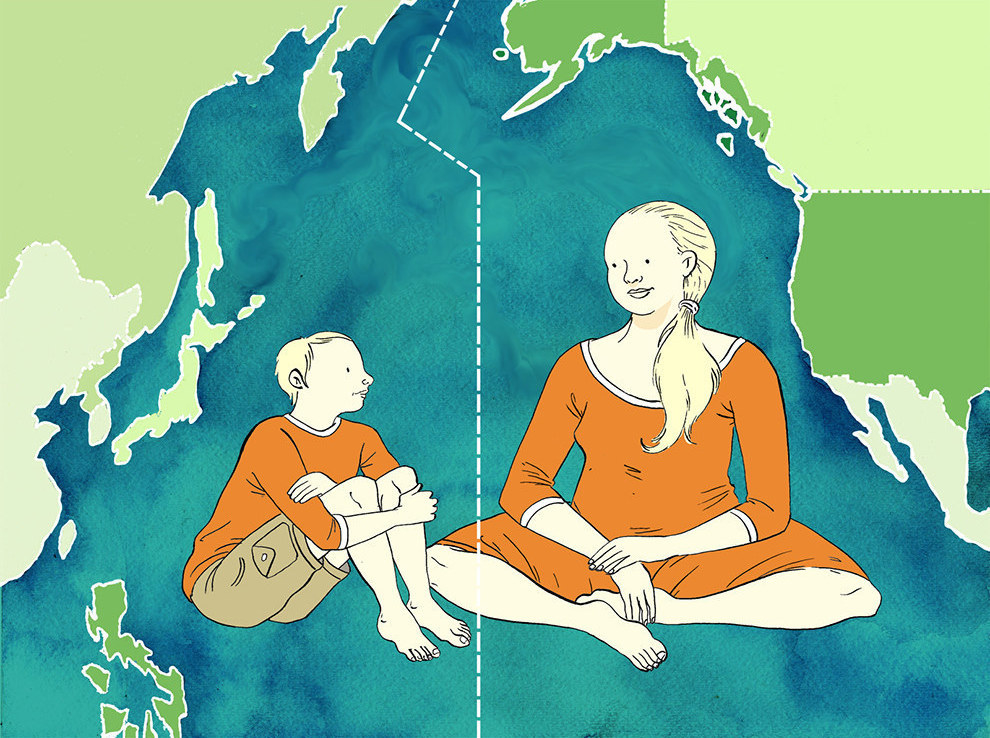
"I moved to the U.S. from the Philippines when I was 15, where I had been raised as a boy. About a decade later, I started to live as a woman and eventually transitioned. I think of migration and transition as two examples of the same process – moving from one home, one reality, to another."
I Found The House My Grandparents Abandoned in 1947 — Ahmed Ali Akbar

"So many Americans go to India to find themselves. But I went to find the history my family lost in the subcontinent’s Partition."
How I Became A Southern-Fried Nigerian — Israel Daramola
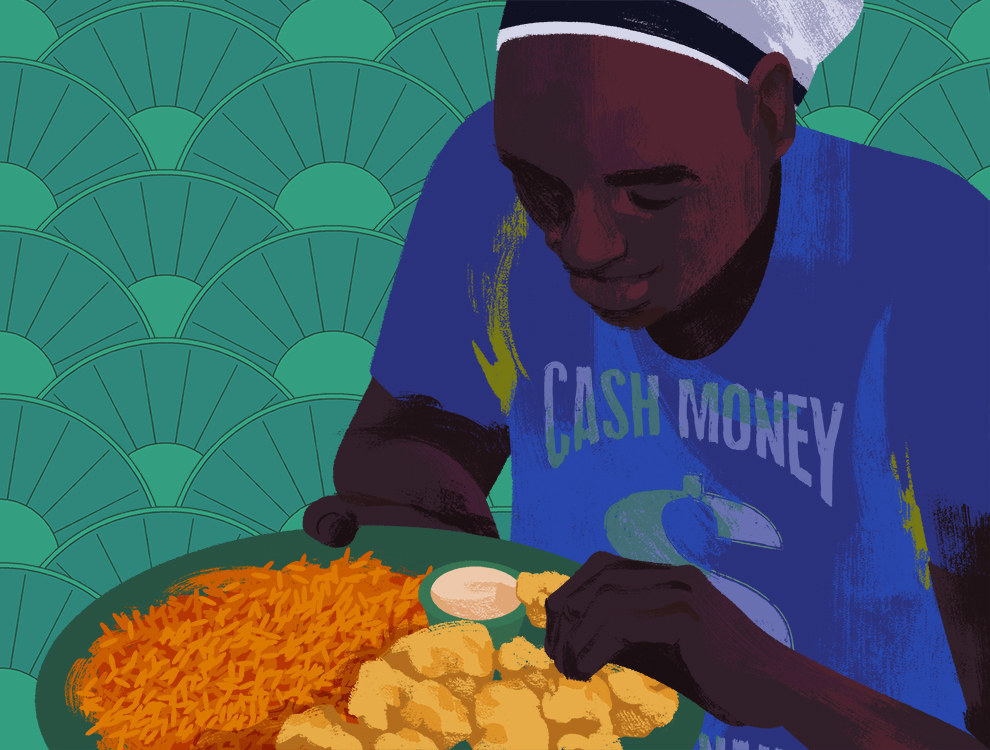
"I once felt torn between Nigeria and Florida, between jollof rice and fried alligator, but there is no real me without both."
Learning To Mourn In My Father's Country — Reggie Ugwu
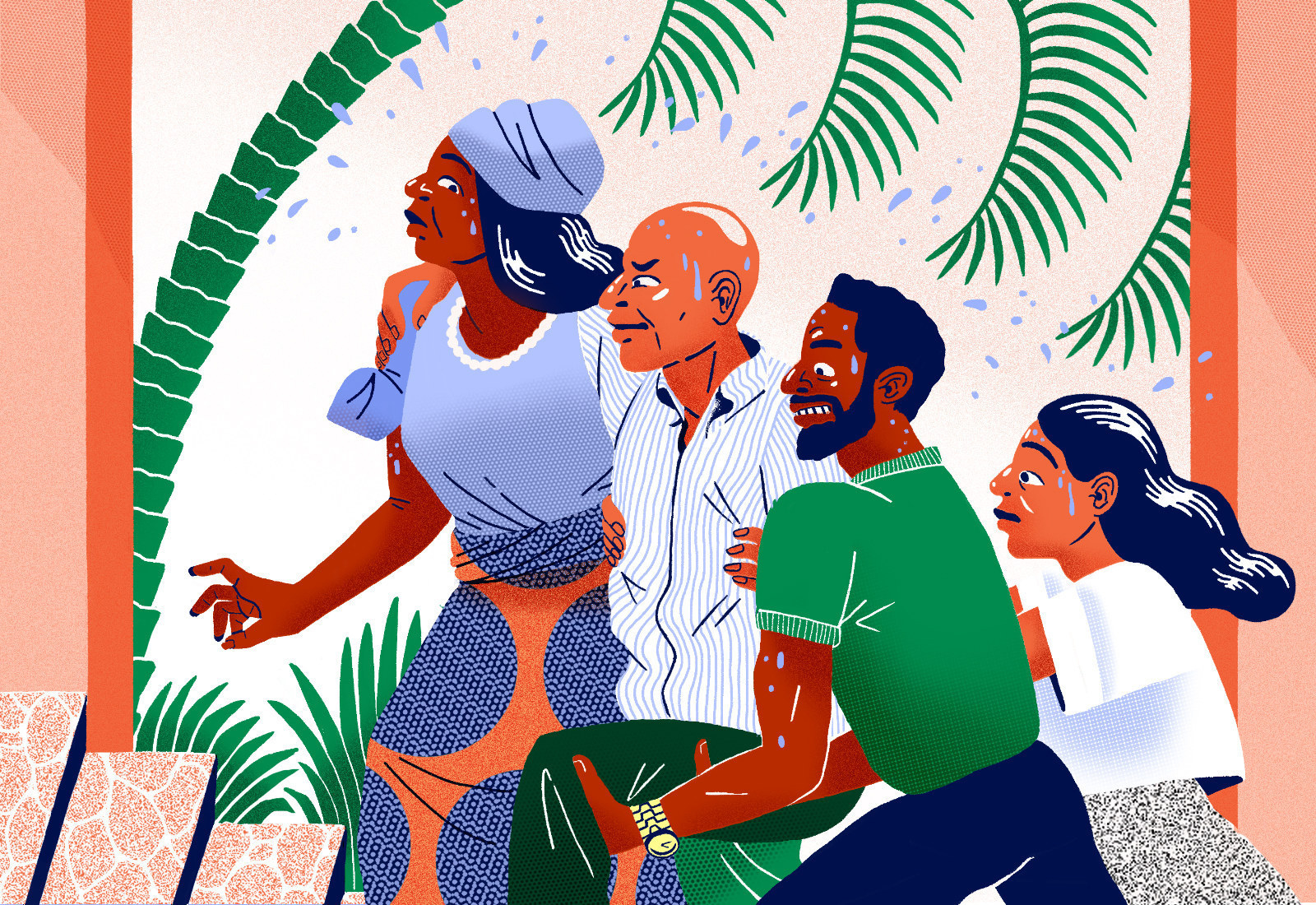
"After my brother died and my father was partially paralyzed, my family traveled 7,000 miles in search of an old home, a new house, and the things we’d lost on the road in between."
How To Get Your Green Card In America — Sarah Mathews
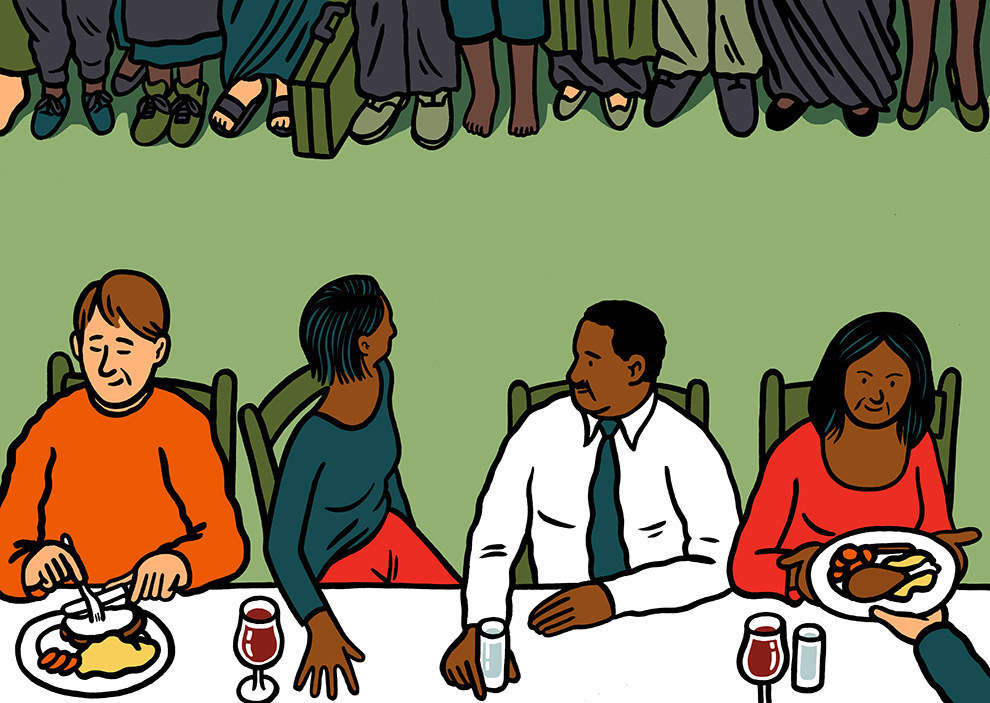
"When you perform the act of audacity that is consolidating an entire life into a couple of suitcases and striking out to make your way, what is not American about that? When you leave the old country so that your daughters can have a good education and walk down their streets without fear, what is not American about that? When you flee violence and poverty to come to a land of plenty, when you are willing to learn new languages, to haul ass, to do twice as much work, what is not American about that?"
A Childhood Spent Inside A Chinese Restaurant — Susan Cheng

"Being one of the few Asians in my school was hard enough. Working at my parents’ Chinese restaurant didn’t make it any easier."
How I Learned To Celebrate Eid Al Adha In America — Zainab Shah

"I bent over backward to explain myself. 'From Pakistan,' I would say. 'Not a terrorist,' I almost added. But I didn’t — the joke would only be funny if racial profiling didn’t exist."
Texts From My Parents: What It Was Like To Leave Vietnam — Nicole Nguyen

"They did it for us, and I'll spend the rest of my life trying to make the most of it."
What It’s Like Speaking A Different Language From Your Parents — Zakia Uddin

"My parents and I communicate in an incomplete mash-up of Bengali and English. I sometimes wonder what we are missing."
Topics in this article
- Immigration
- Write with Focus
- Read with Purpose
- Build your Community
- Discover Classes & Tools
Writing about the Immigrant Experience

Sep 23, 2021 by Tammy Pasterick published in Writing

Immigration is an emotional topic that can turn the friendliest of conversations into a fierce debate. People have wide-ranging views that have been shaped by their own experiences, the opinions of friends, and the news programs they watch. Writing about the immigrant experience requires a lot of nuance and attention to detail.
Seven years ago, when I started writing my historical novel, I was not paying close attention to the news coverage of the migrants at the Mexican border or the Syrian refugees crossing the Aegean Sea to get to Greece. I had been inspired by my research into the lives of my great-grandparents, who immigrated to America at the turn of the twentieth century to work in the steel mills of Pittsburgh, and simply wanted to recreate their world in a novel.
I did not anticipate that my genealogy project turned historical novel would have so many parallels with today’s immigration issues and would provide such a relevant and timely message about empathy.
I’m an American. I was born and raised in Western Pennsylvania and have lived in Maryland for the past twenty years. I cannot speak to the challenges faced by today’s immigrants nor have I considered telling their stories. People who have ridden Mexico’s La Bestia or who have recently fled the Taliban rule in Afghanistan have heartbreaking stories to tell, and I am not qualified to provide advice on how to write a memoir.
My expertise lies in historical research and novel writing, and I have learned some important lessons about how to write about the immigrant experience from the past and pay tribute to their unique sacrifices.
Whether your ancestors were from Italy, Ireland, Egypt, or Argentina, the following tips will help you bring your family’s past to life while taking readers on an entertaining and emotional journey in writing about the immigrant experience.
Research your family history.
Conducting research into your family’s past is the first step in writing about the immigrant experience. Websites like Ancestry.com and MyHeritage.com have a wealth of birth, marriage, military, and death records as well as ship manifestos and census information. These documents may reveal some fascinating facts about your ancestors and spark your imagination.
While I was on Ancestry.com, I found the World War II draft registration card for my Lithuanian great-grandfather, who was in his early fifties at the time he signed it. I’ve often wondered what motivated his bravery, as his advanced age exempted him from the draft. Was he hoping to return to Europe to find a lost love or a child he gave up for adoption? Was he seeking revenge on the Germans for killing his best friend during World War I? I may never know, but these theories are all good premises for a novel.
Research the time period.
The world you create in your novel should be historically accurate, so read as much as you can about life in the time and place your immigrants settled. In my case, I read excerpts from The Pittsburgh Survey, a sociological study conducted from 1907-1908, which chronicled the living conditions of immigrant families. I also consulted several books about the steel and coal mining industries in Pennsylvania in the early 1900s.
While there is more freedom in writing fiction than non-fiction, you should still try to educate readers as you entertain them. Just be careful not to weigh your story down with too many unnecessary details. It takes time to achieve the right balance, and you’ll most likely master this during the editing process.
Be careful when writing dialogue.
Dialogue is tough for all writers, but it’s especially challenging when writing historical fiction—even more so when your characters are speaking a foreign language. You need to stick to a certain style when your immigrants are speaking to each other in their native tongue and another style when they’re struggling to converse in a second language.
For instance, characters who are learning English might misuse words and only speak in the present tense. They might also stutter or pause repeatedly when telling a story. When immigrant characters are speaking to each other in their native language, simply insert tags like “he said in Slovak” to alert readers that the conversation is occurring in another language. You won’t need to manufacture mistakes in these situations since people generally speak their first language effortlessly.
Sprinkle in world events, politics, and societal conflicts that affect the immigrant experience.
In my opinion, the best historical novels always have characters struggling with both internal and external forces. In Dr. Zhivago , for instance, Yuri Zhivago falls in love with a beautiful young nurse while married to his childhood sweetheart. He wrestles with his feelings and his conscience while the events of World War I and the Bolshevik Revolution tear his world—and his family—apart.
If your story takes place in a turbulent time, include those events. Providing a portrait of the larger world will help readers gain a deeper understanding of your immigrants’ struggles.
In my novel, the primary focus is on the relationships within the immigrant family, but I also show how the labor movement, social inequality, anti-immigration sentiment, and the deplorable working conditions in the steel and coal mining industries impact their lives.
Add plenty of drama!
Historical fiction readers are looking for an escape to the past. They want to be taken on an emotional journey while learning about a specific time period or world event. While it may be tempting to include every fact you uncovered about Chinese immigrants building the transcontinental railway, don’t do it. Your novel will turn into a history book.
Drama is the key to good historical fiction, and your book should have plenty of it. You want your readers to laugh, cry, clench their fists in anger, and maybe even throw the book across the room.
In my novel, I paint a very accurate picture of 1910s Pittsburgh and include vivid descriptions of the steel mills, coal mines, and immigrant neighborhoods. It’s all very interesting, but what makes my book even more fascinating is my main character’s unraveling sanity. It affects her entire family and drives the plot forward. It’s the element that keeps readers turning the pages.
No matter what type of drama you choose to add—a love triangle, a murder, or kidnapping—you can create an authentic portrayal of the immigrant experience and still keep your story spicy.

A native of Western Pennsylvania, Tammy Pasterick grew up in a family of steelworkers, coal miners, and Eastern European immigrants. She began her career as an investigator with the National Labor Relations Board and later worked as a paralegal and German teacher. She holds degrees in labor and industrial relations from Penn State University and German language and literature from the University of Delaware. She currently lives on Maryland’s Eastern Shore with her husband, two children, and chocolate Labrador retriever. Beneath the Veil of Smoke and Ash is her first novel.
You can follow Tammy on Facebook , Twitter , and Instagram .
Success! Now check your email to confirm your subscription.
Enjoyed this article?
There was an error submitting your subscription. Please try again.
DIYMFA Social

Learn more »
Writer Fuel
Get email updates including a free diy mfa starter kit.
………………………….. This mini-course delivered via email gives you resources so you can jumpstart your personalized program. …………………………..
The Resources
New start here, writing resources.
Use these craft and creativity resources to Write with Focus.
…………………………..
Reading Resources
Discover the basics of Reading With Purpose.
Community Resources
Learn techniques to Build Your Community.
Life Lessons From My Immigrant Parents
Senior Director, Law Practice Program at Ryerson University

Like most children, growing up I did not appreciate the tremendous influence that my parents had on shaping my values and beliefs. As an adult currently working with immigrants to Canada, I now realize just how much my parents and their experiences have impacted me.
My mother was a young woman in her early twenties when she crossed the Atlantic alone, arriving at Pier 21 in Halifax, before taking the train to Montreal, and then Toronto. She was the youngest daughter of six children, and had never before this experience traveled away from her familiar neighborhood of Kalogonia (literally "the good corner") in Sparti, Greece. However, she was of a time when dowries were expected of families by grooms. Appreciating how hard her parents worked, she chose to leave home to alleviate this future obligation when she, one day, would marry. Having limited education, no English language, little money and few other family members abroad... I am often amazed when I consider the journey upon which she embarked. I often wish I could meet my mother at the age of 25 and discuss her fears, challenges and hopes at the time. But she survived, indeed succeeded, in many ways... with grace, determination and tremendous kindness, bringing to Canada a future husband, siblings, in-laws, nieces and nephews.
As a man in that era, my father had the opportunity to travel more than my mother before arriving in Canada; mandatory military duty at that time for all Greek men meant that he had seen many parts of the country, including snowy parts of Northern Greece (a prelude of things to come, perhaps). Born and raised in a small village in southern Greece, my father's entrepreneurial spirit shone through from a young age: He was the first young man in his village to buy a bicycle as a means of transportation, and to set up shop as a tailor in the next village. But he wanted more, beyond Greece, and when a friend he trusted told him his sister in Canada was "of age" for marriage... my father agreed to the engagement and subsequent travel across the Atlantic. He, too, arrived without much money, no English language and limited education, but a drive to succeed, a strong work ethic and solid family values. Even in the toughest of times, his humor and positive attitude pulled him forward. To this day, "don't worry, be happy" is one of his favorite English sayings!
Together my parents built a life as newcomers in a land they would come to greatly appreciate, one which they saw as opening up opportunities for them and their future family. Along the way, their experiences provided me many valuable "life lessons," including the following five:
Respect: Throughout their lives, my parents demonstrated a solid respect for all individuals, regardless of their background. They truly enjoyed people, with the result that their customers, neighbors, colleagues and employers from a wide cross-section of ethnicities, ages and income levels cherished them! Fundamentally, my parents also taught us to always respect ourselves and our families, which then made it easy to extend the same care and appreciation to others. Language : Both of my parents struggled to learn English. They certainly found ways to cope, but on occasion my father would speak with regret that he had not more fully learned the language of his adopted country. There were experiences and opportunities he felt he had missed, as a result. From a young age, my parents helped me realize that the power of words, of language, cannot be underestimated for one to be a fully engaged citizen. Their struggles were my motivation to learn as much as possible, at all times.
Patience : Anybody knowing my father would agree that he likes to get things done immediately and would be surprised at my suggestion that I have learned patience from him! However, as a general philosophy, perhaps because of the era in which they were raised, perhaps because of the challenges they faced, both my parents appreciated that sometimes, some things... just take a little while. Waiting is okay; there is no need to rush through life, all the time. If something is meant to happen... it will. Born and raised in an agrarian society, they reminded me frequently that nature has its own timetable and cannot... and should not... be rushed.
Determination : My parents left their place of birth for an unknown country, with little information about what to expect. Each for their own reasons, was determined to make things work, despite challenges and roadblocks. They simply kept pushing through, not giving up in the face of adversity. As a student, whenever I neared the end of an essay or studies and felt I had no more energy or drive left, my father would offer encouragement by saying in Greek, " Τώρα που έφαγες τον γάιδαρο, θα αφήσεις την ουρά ;" The literal (funny) question asked me how I planned to leave the tail -- when I had already finished off the rest of the donkey! But the essence, of course, was a reminder that since I had made it this far... I certainly had it in me to accomplish my ultimate goal!
Work and Play : This lesson is perhaps the most relevant and ties all other lessons together. My parents showed me what a strong work ethic meant. When they worked, they worked very hard. However, our home and life was also full of music, games and family activities. I still remember times after a full day at their store, my parents would close up shop late at night, get us into the car, and drive nearby for an ice cream... or further away to Niagara Falls to enjoy the evening lights on the water. They did not worry about "work-life balance"; they just incorporated both elements into their lives, when and as they could. Sometimes one area drew more of their attention, but eventually (with patience), the tide always seemed to turn the other way again.
Support HuffPost
Our 2024 coverage needs you, your loyalty means the world to us.
At HuffPost, we believe that everyone needs high-quality journalism, but we understand that not everyone can afford to pay for expensive news subscriptions. That is why we are committed to providing deeply reported, carefully fact-checked news that is freely accessible to everyone.
Whether you come to HuffPost for updates on the 2024 presidential race, hard-hitting investigations into critical issues facing our country today, or trending stories that make you laugh, we appreciate you. The truth is, news costs money to produce, and we are proud that we have never put our stories behind an expensive paywall.
Would you join us to help keep our stories free for all? Your contribution of as little as $2 will go a long way.
Can't afford to donate? Support HuffPost by creating a free account and log in while you read.
As Americans head to the polls in 2024, the very future of our country is at stake. At HuffPost, we believe that a free press is critical to creating well-informed voters. That's why our journalism is free for everyone, even though other newsrooms retreat behind expensive paywalls.
Our journalists will continue to cover the twists and turns during this historic presidential election. With your help, we'll bring you hard-hitting investigations, well-researched analysis and timely takes you can't find elsewhere. Reporting in this current political climate is a responsibility we do not take lightly, and we thank you for your support.
Contribute as little as $2 to keep our news free for all.
Dear HuffPost Reader
Thank you for your past contribution to HuffPost. We are sincerely grateful for readers like you who help us ensure that we can keep our journalism free for everyone.
The stakes are high this year, and our 2024 coverage could use continued support. Would you consider becoming a regular HuffPost contributor?
The stakes are high this year, and our 2024 coverage could use continued support. If circumstances have changed since you last contributed, we hope you’ll consider contributing to HuffPost once more.
Already contributed? Log in to hide these messages.
Popular in the Community
From our partner, more in post 50.

My immigrant parents were scammed out of their entire life savings. I learned the hard way how it could have been avoided.
- In August, 78-year-old Amos Jiang received a text from someone who would prove to be a scammer.
- Jiang's son Eric said his parents lost their entire life savings through an investment scam.
- Eric spoke with Business Insider reporter Yoonji Han about the scheme and how others can avoid them.
This is an as-told-to essay based on a conversation with Eric Jiang, a 29-year-old startup founder and son of Chinese immigrants. The essay has been edited for length and clarity.
On August 3, an unknown number contacted my dad via text message . The person wrote to him in Chinese, saying a mutual friend in Los Angeles referred them to my dad as somebody who could give advice on what living in the US would be like.
My dad didn't know who that friend in Los Angeles was, but told the texter that he was still glad to make a friend and was happy to help out where he could. (Editor's note: Business Insider confirmed this exchange via screenshots of text messages provided by the subject's father.)
They switched messaging platforms a few times, from text to WeChat to Line. That was when the person let my dad know about a potential investment opportunity with spread trading and cryptocurrencies.
My fiancée and I were planning to get married next year, and my dad was searching for opportunities to help pay for our wedding . He was also planning to surprise us with buying us a house.
My father made an initial deposit into one of the fraudulent exchange platforms . Everything looked legitimate: There was an exchange interface where my dad could see his deposit, and a function where he could move his funds and make trades on the exchange.
Over the next three months, my father added more money onto various exchanges, thinking he would be able to help pay for our wedding with his returns .
Discovering the scam
In November, the local police department and an FBI agent showed up at my parents' house and told them that an account my dad had wired money to was suspected of fraud and scamming elderly people .
My dad soon confirmed that he was not able to withdraw any of his balance from the investment platform.
They had lost everything.
As part of the investment, my parents took out a HELOC, a home equity line of credit , on their home. The vast majority of that HELOC was wired to the scammers. My parents were devastated. They had lost their entire life savings, and are most likely going to have to sell their home to pay off the HELOC.
My fiancée and I are doing everything we can to try to explore ways to help. I had to shut down the company I had been a co-founder of, so I can't personally support them financially. We cancelled our wedding and set up a GoFundMe to help spread awareness and help raise some funds to hopefully help save our parents' home.
Elderly immigrants can be easy scam targets
My parents are first-generation immigrants from China. They came here in the '80s with pretty much nothing. They worked extremely hard, holding multiple jobs like delivering newspapers, working as a live-in nanny, and various software positions. They worked really long hours to provide a home, a life, and an opportunity for me.
It definitely seems like the scammers wanted to take advantage of a Chinese speaker, given that they reached out to my dad in Chinese and asked for advice on living in America. There were all of these elements that play into this, like my dad being older — he's 78 years old — an immigrant, and most likely not perfectly fluent in understanding these potential vectors for attack.
How to avoid being scammed, and keep your loved ones safe, too
When it comes to avoiding these kinds of scams , the most crucial thing is to proceed with caution when an unknown number contacts you. That applies to anyone — the young, the elderly.
Don't provide personal information, and confirm that someone is who they say they are before continuing a conversation with them.
But let's say they're successfully able to convince you that they're real. I think it's really important for the elderly to tell their family or anyone who can support them about what's happening before engaging in anything.
I wish my dad had let me know that this was happening so I could have done something about it.
Correction: December 7, 2023 — An earlier version of this story misstated what the subject's father was planning to pay for regarding a house. He was planning to buy the newlyweds a new house, not just help with the down payment.
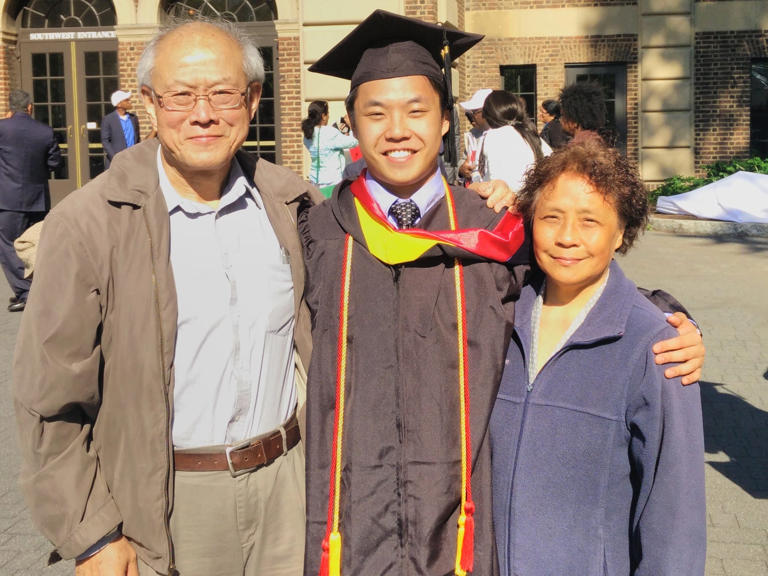
- Personal Essay
How Moving to NYC Made Me Rethink My Family’s Immigrant Experience
Updated on 10/10/2018 at 9:30 AM
:upscale()/2018/08/31/827/n/37139775/tmp_hx7EAF_a78c85025ba8cd03_Jas_Headshot.jpg)
Jasmine Fernandez is a senior account manager at POPSUGAR.
It wasn't until my move from California to New York that I found myself thinking more and more about my Mexican-American heritage . Not only did I move to NY the year my grandfather passed away, but it was also the year Donald Trump got elected as president, which brought on its own set of panic and "should I even be moving?" anxiety.
A year and a half after my move, as I see the injustice of migrant parents being separated from their children , I'm taking a moment to reflect on my grandparents and their immigrant experience.
When my grandparents married in 1957, my grandfather immediately wanted to leave the poverty of Mexico for the US, the land of opportunity, where he could build his life with his new wife — but my grandmother couldn't bear to leave her mother and sisters in Mexico. So for about 15 years, my grandfather went back and forth between Mexico and the US, working in the fields and railroads of California, thanks to the Bracero Program (a set of diplomatic agreements between the US and Mexico that brought millions of Mexican guest workers into America between 1942 and 1964), and sending money back to his wife and kids in Mexico. He finally came to America in the 1950s thanks to the same program.
:upscale()/2018/08/31/047/n/44154810/tmp_VBrENu_a75b4f98052f0edb_Grandpa_Grandma_70s_1_.jpg)
Their daughter's life was on the line if they didn't find better medical care.
When my mother was born in the 1960s (the fourth child, the first daughter), my grandmother decided to join my grandfather permanently in the US. As a child, my mother was severely sick, and the doctors in Guadalajara weren't able to diagnose her condition. It was then that my grandfather got through to my grandmother — their daughter's life was on the line if they didn't find better medical care.
My grandmother left her mother and sisters in Mexico, not knowing a word of English, and joined my grandfather in Los Angeles in 1970. My mom was only 8 years old. While my grandfather worked in fields, factories, and houses, my grandmother took care of their six children (two of which were born in the US), while taking their one very sick daughter to neverending doctor's appointments. They worked hard to make ends meet, with the family of eight living in a small two-bedroom apartment in Rosemead, CA.
After all those doctor visits, my mom was diagnosed with a life-threatening condition, which required extensive surgeries at The Children's Hospital Los Angeles. Had my grandparents not immigrated to the US, my mom wouldn't have even made it to her quinceañera, nor would I be here writing this today.
:upscale()/2018/08/31/046/n/44154810/tmp_Fht9RY_882a8bd834579b38_Mom_Granparents_Me.JPG)
My family had a lot of opinions about my move to NY. My mom calls me loca for moving 3,000 miles away, my cousins tell me I'm brave for moving on my own, and my aunt tells me how proud and excited she is for what I'll do next. But the reality is, sometimes, as I wait to board a 20-minute delayed sardine-packed subway in 100 degree weather with 100 percent humidity, I find myself asking, "What am I doing here?"
It's hard and lonely being so far away from my family, but I can't help but think of the strength my grandparents had to move to a completely different country so their children could have the opportunity to live the American dream.
It's in those moments that I think of my grandparents. It's hard and lonely being so far away from my family, but I can't help but think of the strength my grandparents had to move to a completely different country — not speaking the language, leaving everything they knew behind including their parents and siblings — all so their children could not only have the opportunity to live the American dream, but just to live.
My grandfather's birthday is Sept. 17, one day after Mexican Independence Day and right at the beginning of Hispanic Heritage Month . I'll be thinking of him and my mema, sending my thanks to them up in heaven — thanking them for the sacrifices they made for their children and their children's children for a better future.
I hope to honor them by building upon their foundation. That's why I'm here , to challenge myself to grow, to seize the opportunities they and their parents were never afforded, and hopefully create something meaningful, because without their strength and courage, I would not be here today.
This month, and every day, I ask you to think of all the parents separated from their children and all their sacrifices. Consider donating to RAICES or another non-profit helping immigrant families. These grandparents and parents are just looking for a better life and opportunity for their family — like mine were back in the 1960s — and isn't that what this country was founded upon?
- Latinx Heritage Month
- 2018 Hispanic Heritage Month
- Share full article
Advertisement
Supported by
New Migrants Get Work Permits. Other Undocumented Immigrants Want Them, Too.
Long-term undocumented immigrants — and their employers — are feeling left out by Biden administration policies allowing most who just crossed the border to work legally.

By Miriam Jordan and Lydia DePillis
Sam Sanchez, a Chicago restaurateur, was incensed when President Biden announced last September that his administration would extend work eligibility to nearly half a million Venezuelans, many of them migrants who had recently crossed the border illegally.
Listen to this article with reporter commentary
What about his undocumented employees like Ruben, a Mexican father of two U.S.-born children who has been in the United States since 1987, and Juan, another Mexican worker, who has trained dozens of new hires at Moe’s Cantina?
“It’s offensive that my employees and other immigrants are being leapfrogged by new arrivals,” said Mr. Sanchez, who is on the board of the National Restaurant Association.
Having built lives and families since entering the country unlawfully many years ago, they have been waiting for Congress to give them a path to work legally. “For those of us here a long time trying to do everything right, it’s just not fair that we are forgotten,” said Juan, 53, whose last name was withheld out of concern about his immigration status.
Confronted with an influx of migrants making their way to Chicago, New York and other big cities, Mr. Biden has used executive power to allow several hundred thousand of them to live and work temporarily in the United States in an effort to make them less reliant on shelters and other assistance.
Now groups representing undocumented immigrants and their U.S.-citizen children — as well as their employers — are urging the president to deploy the same broad power to open channels for the more than eight million living in the United States who are barred from legal employment.
“If President Biden can grant work permits to new arrivals, he can do it for people picking our crops, emptying bedpans and cleaning hotel rooms for more than 10 years,” said Rebecca Shi, executive director of the American Business Immigration Coalition, whose 1,400 members include business associations and company executives.
Business leaders have lobbied Republicans and Democrats on Capitol Hill for decades to overhaul the broken immigration system and address their labor needs. But the calls have gone nowhere in an increasingly polarized Congress.
At a rally in Chicago last month, demonstrators urged the Biden administration to allow undocumented immigrants to work legally. And in Las Vegas, Nevada’s governor, a Republican, and the state’s U.S. senators, both Democrats, joined employers, unions and immigrant advocates to send the same message.
The business coalition, in a letter to the president signed by more than 300 employers and trade associations, urged “immediate action” to extend work authorization to long-term undocumented people. In particular, Ms. Shi said, the president should prioritize work permits for those without legal status: more than one million undocumented spouses of U.S. citizens, 800,000 parents of U.S.-citizen children and 300,000 farm workers.
About three quarters of the 10.5 million undocumented people in the United States as of 2021 were in the labor force, according to the Pew Research Center , an independent think tank. Roughly two million people out of the overall undocumented population have a temporary legal status that makes them eligible to work.
But a sweeping action by the president to allow millions more to work legally could prompt court challenges and political attacks from critics, even as some of those same critics have stymied or undermined the administration’s efforts.
Mr. Biden’s latest proposal — a bill this year to curb unlawful migration — was backed by top Republicans in Congress. But it collapsed after Republican leaders withdrew support, bowing to pressure from former President Donald J. Trump, their party’s presumptive presidential nominee.
The surge in migration to the United States has left Mr. Biden with no easy options. The perception that he is favoring newcomers over longtime undocumented immigrants could hurt him among Latino voters, long a Democratic bloc that has begun to fragment, with an increasing number supporting Republican candidates.
Eduardo Gamarra, a professor at Florida International University who recently polled Latino voters , said that some of them who have settled in the United States may see themselves as having less in common with the new immigrants.
“When you try to say, ‘Why are you supporting these positions?’ they will tell you, one, ‘We don’t like illegals,’ even though they might have been illegal themselves,’” Dr. Gamarra said.
Channels exist for foreigners to immigrate legally to the United States, but they are available primarily to those who have specialized skills or family already in the country.
Meanwhile, international crises have pushed millions of people toward the U.S. border. Haiti, Venezuela, Cuba and Nicaragua have endured years of political and economic turbulence. Over the last year, President Biden has used humanitarian “parole” to allow about 390,000 people from those countries to come to the United States and receive work authorization, provided they have a financial sponsor.
Hundreds of thousands of other Venezuelans who have fled their country have received what is known as Temporary Protected Status, which has helped Venezuelans leave shelters as they receive work permits.
To better manage the flow of migrants, the Biden administration has promoted a smartphone app that since last year has granted parole to those who use it to schedule appointments at the border, creating another way for migrants to obtain work eligibility.
Margaret Stock, an immigration lawyer, said that the president has legal authority to authorize employment for others. “He may be reluctant, but Biden could grant parole and work permits to whoever he wanted,” she said.
A White House spokesman, Angelo Fernández Hernández, responded in general terms when asked about the push for work permits, saying that Congress had failed to consider the president’s 2021 proposal to reform immigration , and that, “the administration is constantly evaluating possible policy options.” Obtaining a work permit opens up a wider range of opportunities and raises immigrant wages by 10 percent on average, research shows .
Those who have lived unlawfully in the United States for decades typically work off the books, or present documents under a fake or stolen name to get hired, which is illegal. It has become more difficult to do that because about half of all states require employers to use an electronic system to detect irregularities.
Business owners like Mr. Sanchez who employ people without valid work documents have become increasingly vocal about the plight of their workers and their struggle filling jobs amid a labor shortage.
And although more seasonal guest worker visas have been issued in recent years for some sectors, like agriculture, employers say that granting work permits to longtime unauthorized immigrants would do more to address the problem.
“We have operations that want to grow,” said Matt Teagarden, chief executive of the Kansas Livestock Association. “Labor is a limiting factor.”
The billions of dollars that undocumented immigrants contribute to public coffers has heightened the sense that Mr. Biden’s recent efforts for newcomers are unfair. According to an analysis of 2021 census data by the American Immigration Council , undocumented workers paid $31 billion in federal, state and local taxes, including into the Social Security system from which they cannot draw retirement benefits.
Eréndira Rendón, whose parents are undocumented Mexicans in their late 60s, has watched mayors press the White House to issue work permits to recently arrived migrants straining municipal resources.
Her mother jarred pickles and her father worked in a slaughterhouse. They put two children through college and bought a home. Because they cannot receive retirement benefits, they depend on their children to help them.
“I wish the mayors were advocating as loudly for undocumented people who have been here all these years,” said Ms. Rendón, 38, who works for a nonprofit in Chicago called the Resurrection Project that helps new migrants complete work permit applications.
For some immigrants, new migrants also create competition for jobs. Although research generally shows that immigrants do not depress wages overall, there can be short-term effects on similar workers.
The dynamic is palpable in New York City at the corners where immigrants hustle for work. Lucia Goyen, director of day laborer programs at Catholic Charities of the Archdiocese of New York, says newcomers will often accept just a few dollars an hour, lowering wages for everyone.
When new arrivals receive work permits, they are free to find a job in the formal economy that is still off limits to many who have been in the city far longer.
”There has been this frustration of, ‘I’ve been here 20-30 years, I have no access to a work permit, but this is a growing list of things that new migrants are getting handed to them,’” Ms. Goyen said.
Read by Miriam Jordan
Audio produced by Jack D’Isidoro .
Miriam Jordan reports from a grass roots perspective on immigrants and their impact on the demographics, society and economy of the United States. More about Miriam Jordan
Lydia DePillis reports on the American economy. She has been a journalist since 2009, and can be reached at [email protected]. More about Lydia DePillis
Cookies on GOV.UK
We use some essential cookies to make this website work.
We’d like to set additional cookies to understand how you use GOV.UK, remember your settings and improve government services.
We also use cookies set by other sites to help us deliver content from their services.
You have accepted additional cookies. You can change your cookie settings at any time.
You have rejected additional cookies. You can change your cookie settings at any time.
- Entering and staying in the UK
- Visas and entry clearance
eVisa rollout begins with immigration documents replaced by 2025
Millions are being invited to switch from physical immigration documents to an eVisa – a key step in creating a modernised and digital border.

Photo: Getty Images
The next stage in the government’s plan to modernise the border and introduce a digital immigration system is under way, as the Home Office moves closer to the implementation of eVisas for nearly all visa holders living in the UK by 2025.
From today (17 April 2024), the Home Office will begin to send emails to all those with physical immigration documents, called biometric residence permits (BRPs), inviting them to create a UK Visas and Immigration ( UKVI ) account to access their eVisa, a digital proof of their immigration status.
Invitations will be issued in phases before the process opens to all BRP holders in summer 2024.
eVisas are central to making the UK safer by reducing the risk of fraud, loss and abuse of physical documents, strengthening border security, and providing a more secure way to prove immigration status. This will pave the way for increased automation to deliver the government’s vision for a contactless border.
It is free and straightforward for customers who hold physical and paper documents to create a UKVI account to access their eVisa. Creating a UKVI account will not change, impact or remove customers’ current immigration status or their rights in the UK.
Minister for Legal Migration and the Border, Tom Pursglove MP, said:
We’ve already taken really significant steps to digitally transform the border and immigration system, and this wider rollout of eVisas is a key part of that process. Replacing physical immigration documents with eVisas will ensure firm control over who comes here to live, work or study, strengthening border security and preventing abuse of the immigration system, while delivering cost savings for UK taxpayers.
eVisas bring substantial benefits to the UK public and to visa customers. They are secure, and, unlike a physical document, cannot be lost, stolen or tampered with. They can be accessed anywhere and in real time, putting customers in control of their own data and allowing them to swiftly update the Home Office with new contact or passport details.
An eVisa is securely linked with the holder’s unique biometric information in the same way as a BRP or BRC , to protect against identity fraud.
People checking immigration status will be able to conduct one quick and simple check using a secure online service on GOV.UK. Selected public bodies are already able to access immigration status to determine eligibility for public services automatically through system to system checks.
eVisas are tried and tested, with millions of customers already using them across routes including the EU Settlement Scheme ( EUSS ). Most physical documents, such as biometric residence permits or cards (BRPs or BRCs), are being gradually phased out, with most BRPs expiring at the end of 2024.
This move to eVisas is in line with other countries which have replaced, or are planning to replace, their physical immigration documents with digital forms of immigration status.
Customers who already have an eVisa do not need to do anything as we make this change, but should continue to update their UKVI account with any changes to personal information, such as a new passport or contact details. Customers should continue to carry their in-date physical immigration documents with them when they travel internationally, until they expire.
Physical immigration documents will be gradually phased out by 2025, as we transition to a fully digital border and immigration system for new and existing customers. This will deliver enhanced security and cost savings for the UK public and greater convenience for customers and status checkers.
Customers who already have an eVisa should tell the Home Office about any passport on which they intend to travel using the online Update your UK Visas and Immigration account details service on GOV.UK, if this is not already linked to their account, to avoid delays when travelling.
As part of the wider transformation of the UK border and immigration system, the government has already introduced the Electronic Travel Authorisation ( ETA ) scheme. ETA is a digital permission to travel to the UK for those wanting to visit but who do not need a visa. It gives the government greater ability to screen travellers in advance of travel and prevent those who pose a threat from coming here.
Share this page
The following links open in a new tab
- Share on Facebook (opens in new tab)
- Share on Twitter (opens in new tab)
Is this page useful?
- Yes this page is useful
- No this page is not useful
Help us improve GOV.UK
Don’t include personal or financial information like your National Insurance number or credit card details.
To help us improve GOV.UK, we’d like to know more about your visit today. We’ll send you a link to a feedback form. It will take only 2 minutes to fill in. Don’t worry we won’t send you spam or share your email address with anyone.

IMAGES
COMMENTS
College Essay: My Parents' Sacrifice Makes Me Strong. Growing up in a first-generation immigrant family, I witnessed my parents' hard work ethic and challenging traditional Mexican customs. My parents migrated from Mexico as teenagers to find a better life. They grew up in poor villages where they didn't have enough resources to support ...
This essay will delve into the experiences of immigrant parents, exploring the sacrifices they make, the obstacles they overcome, and the impact they have on their children's lives. By examining the stories of immigrant parents from diverse backgrounds, we will uncover the resilience, determination, and love that drive them to create a better ...
Published: Jul 18, 2018. In this essay, I will explore the profound impact of having immigrant parents on my upbringing and perspective. Growing up, I had the unique opportunity to bridge the gap between my life in the United States and the experiences of my parents in Belarus, a country with its own set of challenges and hardships.
My father's family left Greece and emigrated to the United States when he was a teenager. As many come to learn when pursuing the American dream, it wasn't all rainbows and white picket fences. My grandparents, who didn't speak English at the time, struggled to adjust to their new life far from friends and family.
Personal Narrative: My Immigrant Parents. Decent Essays. 865 Words. 4 Pages. Open Document. There were three lessons that my immigrant parents ingrained in their first-generation children: Work hard, never give up, and most importantly, give back. Among other life lessons they taught us, these three were the basis for everything.
1) The American dream isn't the result of hard work. It's the result of hard work, luck, and opportunity. Looking back, I can't discount the sacrifices my family made to get where we are ...
To make your essay truly standout, craft a narrative that captivates admissions officers. Start with a powerful and attention-grabbing opening. This could be a personal anecdote, a thought-provoking question, or a vivid description that draws the reader in from the very beginning. Throughout your essay, use descriptive language and storytelling ...
A moment of sweet nostalgia, when our family had no one but ourselves to lean on and that was all that mattered. Us against the world. Perhaps it's time for me to grab a bowl of popcorn, put up ...
20,000. My parents were immigrants who spoke little English, and I went to the public school down the street. I was not different from many children of immigrants today who are struggling just to make it and to be accepted into America. My own history may be a major factor in the curricula I develop for families and the immediate appeal it has ...
1. Reflect on the moments of your life that you feel define your immigrant experience. It could be a turning point, a struggle, or a triumph. Be as detailed as possible to make your story stand out. 2. Consider discussing how your background has influenced your perspective, values, and goals.
Being true to myself is the only way for me identify my dreams. My parents wanted to make sure that I had my priorities straight so that I can focus on what's important. It's ironic how I learned one of the most important American values from my immigrant parents. I thought this whole time that their "Middle Eastern morals" would separate ...
It's a book of personal essays that begins with a photograph of Tobar's mother holding him as a baby. It's 1954. She's 20 years old, dressed simply but elegantly, her hair carefully set ...
Being raised by immigrant parents can come with numerous advantages. Our families are tight-knit; we're connected to our roots; and we receive exposure to multiple cultural perspectives. This kind of background enriches kids' lives. In some circumstances, however, being first generation creates mental health hurdles.
It's easier to be present and be a good daughter, friend, sister, student, and person overall. 4. Never stop learning. Something I learned very early on from my parents is that "brains are like sponges.". We are constantly learning things and we should never stop trying to.
Save this story. After working a hundred hours a week on top of navigating a new culture and country, immigrant parents may not always have the time or the energy to share Hallmark aphorisms ...
My Immigration Story. I am a child of immigrants. In the 1950's my grandparents emigrated from the Netherlands to Canada along with my parents who were young at the time. I was born and raised in Canada. Being the child of immigrant parents was the most normal thing I could imagine. Growing up, nearly all my friends had parents who were born ...
My parents came to Toronto in 1948 from Cardiff, Wales. They were part of a wave of immigrants — 7,985 — who came to the GTA from the United Kingdom between 1941 and 1950, according to data ...
Hi there! Writing about your experience as a first-generation immigrant can make for a powerful essay. However, keep in mind that it is a common topic among immigrants. To avoid sounding cliché, try focusing on a specific aspect or unique experience that has had a significant impact on you. For example, instead of talking about the general struggle of learning a new language, you might share ...
Here's What I'm Telling My Brown Son About Trump's America — Mira Jacob. Mira Jacob. "Sometimes I wish I could ask America when, exactly, it made its mind up about us. The myth, of course, is that it hasn't, that there is still a chance to mollify those who dictate the terms of our experience here, and then be allowed to chase success ...
It's the element that keeps readers turning the pages. No matter what type of drama you choose to add—a love triangle, a murder, or kidnapping—you can create an authentic portrayal of the immigrant experience and still keep your story spicy. A native of Western Pennsylvania, Tammy Pasterick grew up in a family of steelworkers, coal miners ...
Along the way, their experiences provided me many valuable "life lessons," including the following five: Respect: Throughout their lives, my parents demonstrated a solid respect for all individuals, regardless of their background. They truly enjoyed people, with the result that their customers, neighbors, colleagues and employers from a wide ...
This is an as-told-to essay based on a conversation with Eric Jiang, a 29-year-old startup founder and son of Chinese immigrants. The essay has been edited for length and clarity.
POPSUGAR is a global lifestyle media brand with content encompassing entertainment, style, beauty, wellness, family, lifestyle, and identity. POPSUGAR's team of editors, writers, producers, and ...
In particular, Ms. Shi said, the president should prioritize work permits for those without legal status: more than one million undocumented spouses of U.S. citizens, 800,000 parents of U.S ...
Government activity Departments. Departments, agencies and public bodies. News. News stories, speeches, letters and notices. Guidance and regulation